The FPÖ and the challenge of Europe: Ideological radicalism and electoral constraints in Austria
Introduction
A populist party deeply rooted in Austrian politics
A brief history of the FPÖ
Who is Herbert Kickl, the leader of the party?
The FPÖ in 2024: membership, governance, financing, Media and electorate
The FPÖ and Europe: an ideological challenge and an electoral issue
Austrians remain in favor of the European Union, but skeptisicim is on the rise
Defending an “ethnopluralist” Europe
A culturalist approach reflected in international cooperation
The campaign for the 2024 European elections
Priority themes in public opinion
The FPÖ on the campaign trail: immigration, security, gender, the deep state and Covid-19…
The FPÖ’s competitors
Afterword
Election to the Austrian national council, September 29, 2024
Election results
The economic situation
Immigration to Austria (2024)
The FPÖ campaign
The FPÖ program in 2024
Electoral transfers 2019 – 2024
The sociography of electorates
Political options in the aftermath of the elections
Summary
For Austria, 2024 is a busy electoral year, with European elections, National Council elections, two regional elections and a large number of local elections. On the world stage, geopolitical upheavals from Ukraine to Gaza, the possible election of Donald Trump as President of the United States, and the risk of conflict with Russia have inflamed debates about Austria’s security and neutrality. High inflation and measures to safeguard our climate also became hotly debated issues. Against this backdrop, Austria’s political parties are positioning themselves for the European elections.
However, this is only a stepping stone towards the National Council elections in the autumn, and possibly in the shorter term if the current ÖVP/Green coalition fails to master these issues, to which must be added the burning question of anti-Semitism and the sympathies of many migrants for Hamas. Herbert Kickl, leader of the FPÖ, a national-populist party, has proclaimed himself “People’s Chancellor”, and has announced his intention to radically transform the Austrian political system, and indeed that of the European Union.
This study has been published in May 2024 and has been updated in October 2024, following the elections to the National Council of Austria the 29th September 2024.
Patrick Moreau,
PhD researcher in history and Doctor of State in political science (FNSP), CNRS.
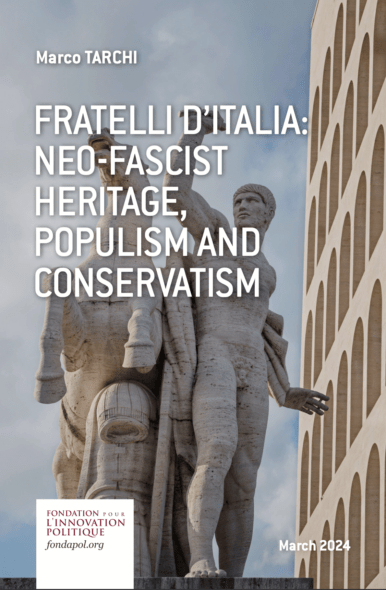
Fratelli d'Italia : neo-fascist heritage, populism and conservatism
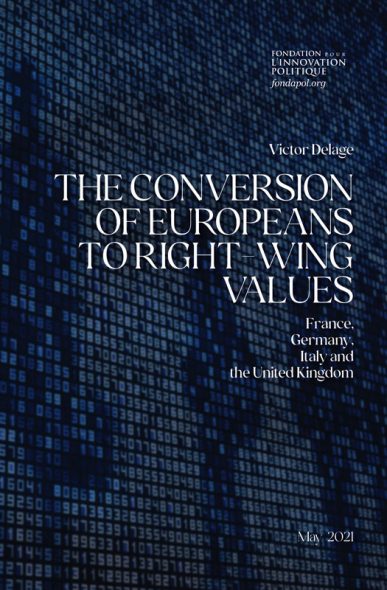
The conversion of Europeans to right-wing values
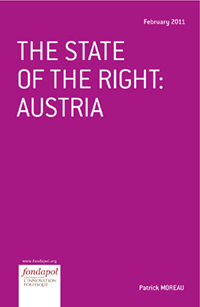
The state of the right : Austria
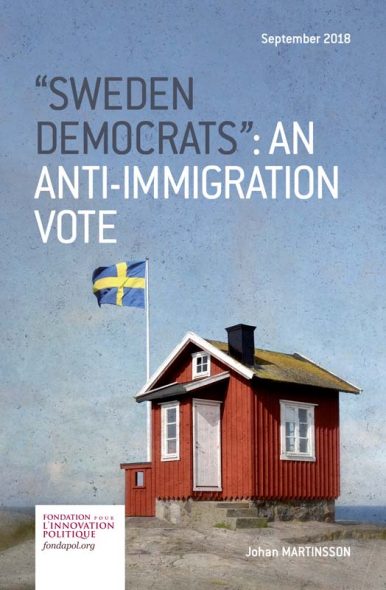
“Sweden Democrats" : an anti-immigration vote
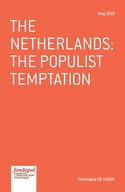
The Netherlands: The Populist Temptation
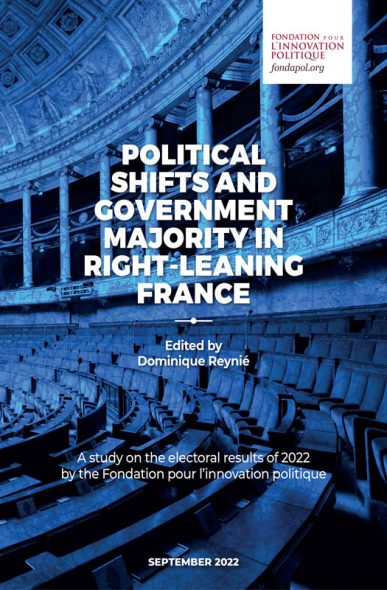
Political shifts and government majority in right-leaning France
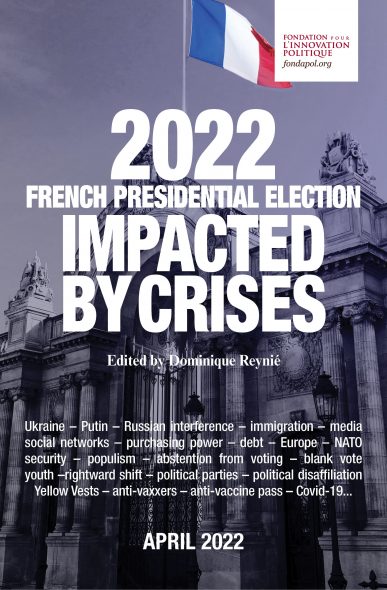
2022, French presidential election impacted by crises
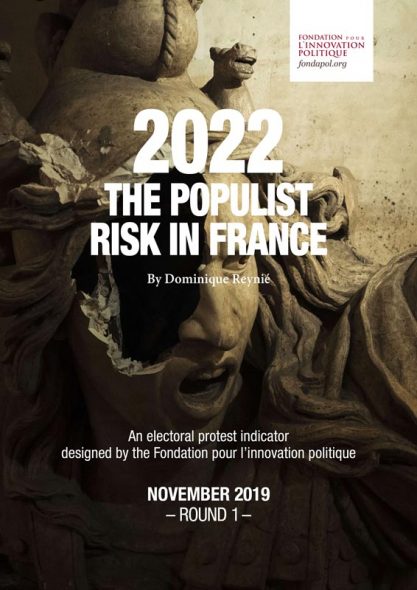
2022 The populist risk in France
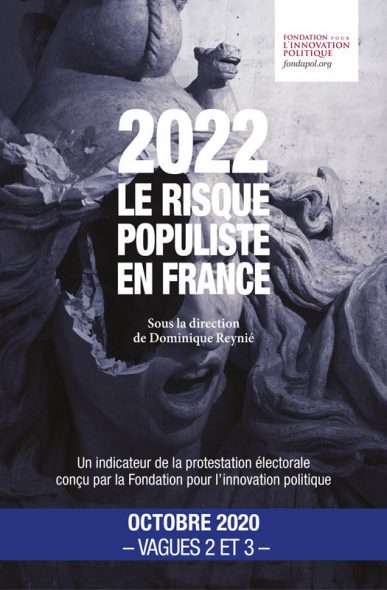
2022, the Populist Risk in France - waves 2 and 3
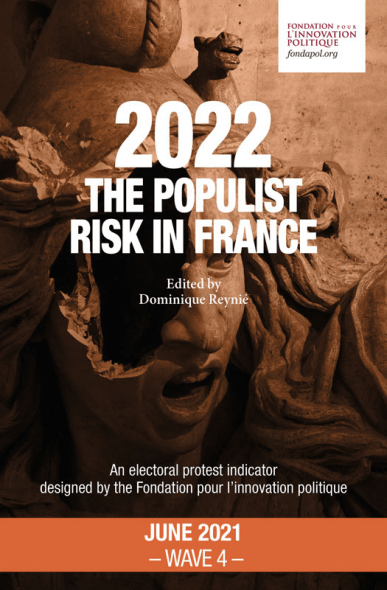
2022, the Populist Risk in France - Wave 4
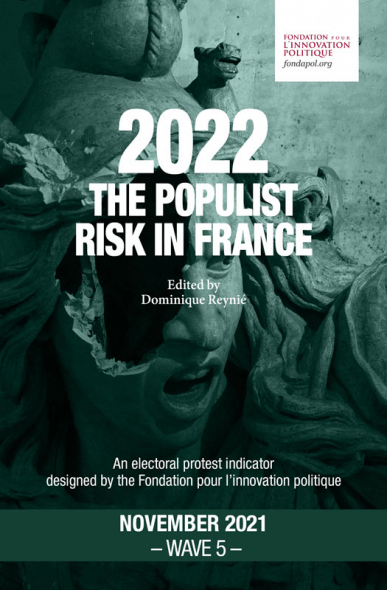
2022 the Populist Risk in France - Wave 5
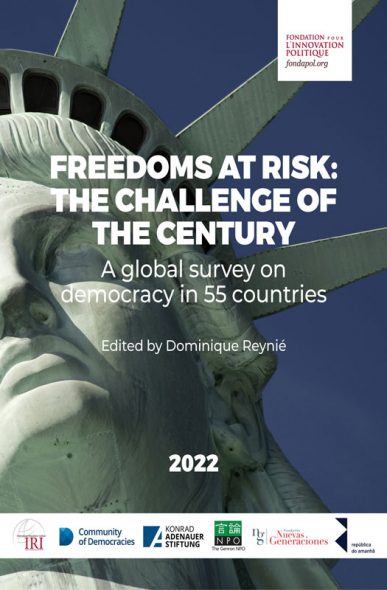
Freedoms at risk: the challenge of the century
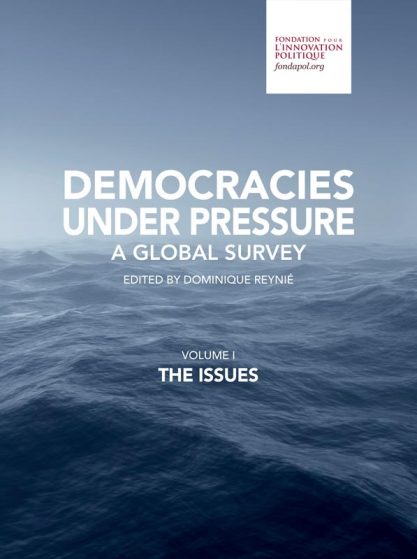
Democracies Under Pressure - A Global Survey - Volume I. The issues
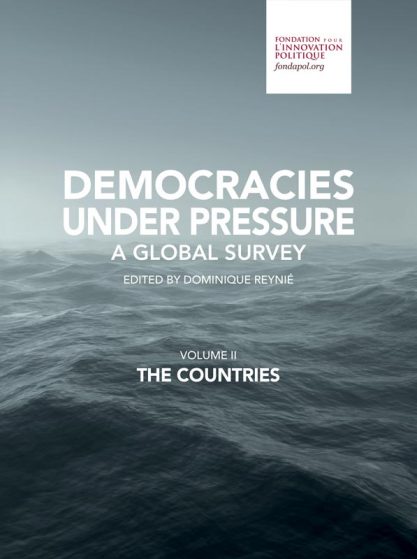
Democracies under pressure - a global survey - volume II. the countries
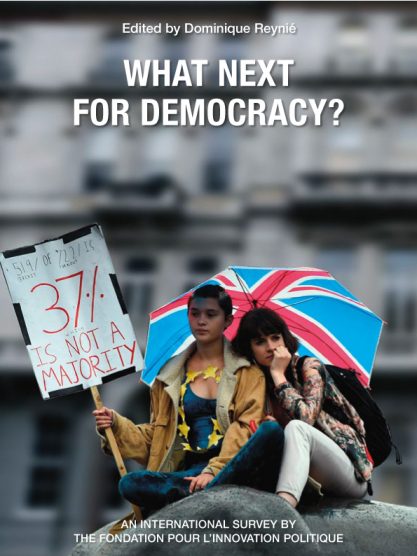
What next for democracy?
In 2024, Austria will experience a “super-election year”, with European elections, National Council elections, two regional elections (in Vorarlberg and Steiermark) and a large number of local elections, particularly in the major cities of Innsbruck and Salzburg. 2024 will be a year of crises. Geopolitical upheavals, from Ukraine to Gaza, the possible election of Donald Trump as President of the United States, and the risk of conflict with Russia have inflamed debates on Austria’s security and neutrality. Immigration and its control are another hot topic. Added to this are discussions about the anti-Semitism and Hamas sympathies of many migrants. The sluggish economic situation and high inflation have become recurrent political topics, as have the hotly debated measures to protect the climate. Finally, the COVID-19 pandemic is not yet over, at least not politically. Against this backdrop, political parties are positioning themselves for the European elections, in the knowledge that this is just one step on the road to election to the National Council in the autumn, or even in the shorter term in the event of a coalition crisis which includes the Austrian People’s Party (ÖVP) and the Greens. For its part, the national-populist Freedom Party of Austria (Freiheitliche Partei Österreichs, FPÖ)1 is preparing to come to power. Its leader Herbert Kickl, who has proclaimed himself “People’s Chancellor” (Volkskanzler), has announced his intention to radically transform the Austrian political system, and beyond that, that of the European Union.
A populist party deeply rooted in Austrian politics
A brief history of the FPÖ
Patrick Moreau, De Jörg Haider à Heinz-Christian Strache. L’extrême droite autrichienne à l’assaut du pouvoir, Cerf politique, Paris 2012.
The FPÖ is deeply rooted in the Austrian political system2. Founded on October 17, 1955, the FPÖ was initially the party representing the former Nazis in the 1960s. For these reasons, it remained weak until the 1980s when it came to electoral results.
FPÖ election results in the National Council (1956-2019, in %)
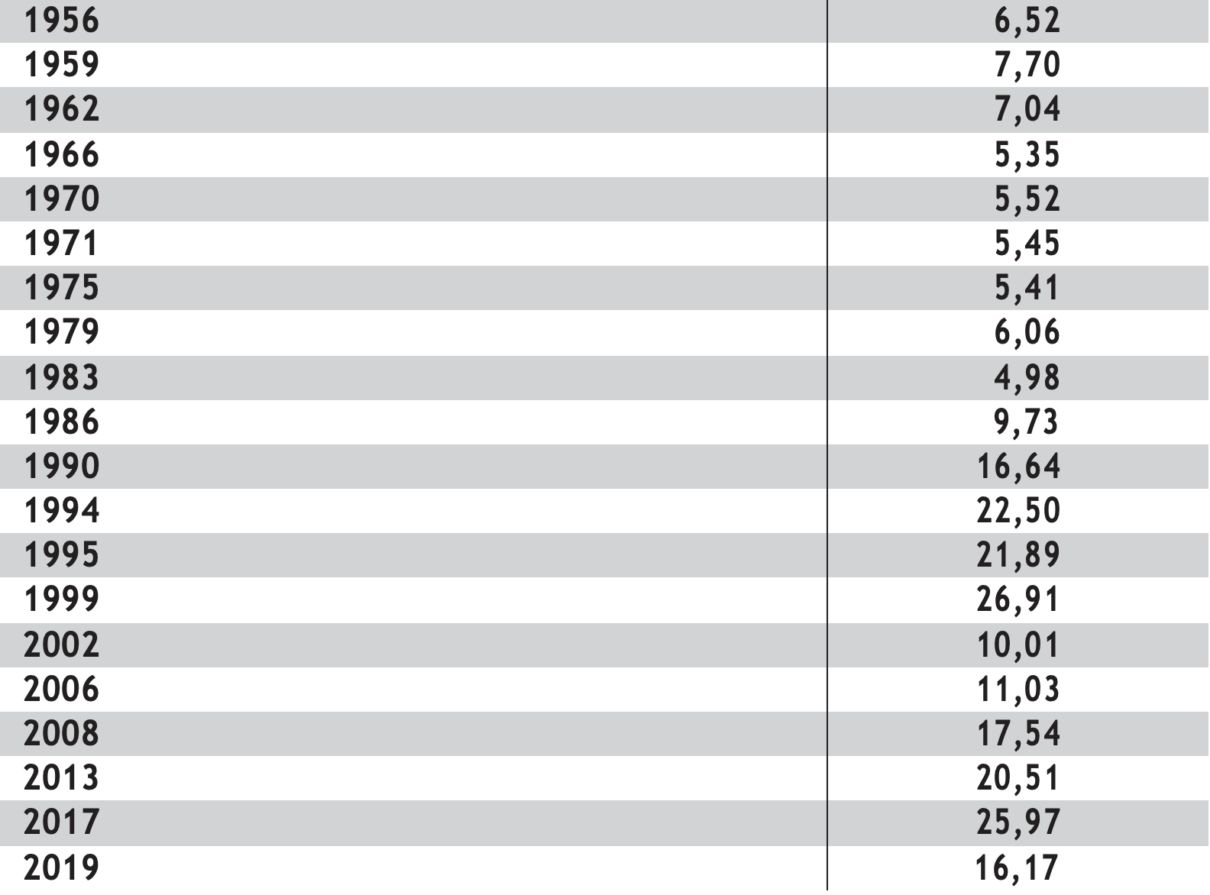
Source :
Nationalratswahlen, bmi.gv.at [online].
In Austria, legislative power is vested in the National Council, which is the lower house, equivalent to our National Assembly in France, and the Federal Council, which represents the regions at federal level. These two chambers are autonomous and together form the national legislature.
Friedrich Peter, who took over the FPÖ leadership in 1958, wanted to free the party from isolation. In 1970, he decided to not start frictions with the minority government of the Social Democratic Party of Austria (Sozialdemokratische Partei Österreichs, abbreviated to SPÖ). In 1980, his successor, Norbert Steger, took a national-liberal stance. In 1983, he formed a coalition with the SPÖ. During this phase, the FPÖ was admitted to the Liberal International in 1978, leading to strong internal tensions between the German nationals and the national liberals. At the 1986 FPÖ congress in Innsbruck, Steger was defeated by the young Jörg Haider, a rising star of the National-German movement. SPÖ Chancellor Franz Vranitzky ended the coalition, pointing out the FPÖ’s “right-wing turn”.
Haider opted for a policy of anti-system polarization. The FPÖ no longer hesitated to relativize National Socialism. In 1991, Haider went too far and was removed from his post as Governor of Carinthia after praising the “orderly employment policy” of the Third Reich. He then discovered the migration issue and made it his main battle-horse, leading to the split of the Liberal Forum in 1993.
In 1999, the FPÖ won 26.91% of the vote in the National Council3 elections. An ÖVP-FPÖ coalition was formed under the leadership of ÖVP Chancellor Wolfgang Schüssel. The coalition provoked an international outcry, and Haider handed over the party presidency to Susanne Riess, who became vice-chancellor, a move that led to a crisis within the party. In 2002, a conflict broke out between Haider and Riess, the latter refusing to allow Haider to return to the party leadership. In September 2002, largely isolated within the FPÖ, she decided to resign. This crisis had a negative impact on public opinion. The early election to the National Council in November 2002 was a disaster for the FPÖ, who collapsed to 10%. However, the ÖVP-FPÖ coalition remained in place. In 2004, the FPÖ triumphed with 42.4% of the vote in the Carinthian regional elections. Haider was once again governor of the Land. However, this success was deceptive: at the European elections in June 2004, the FPÖ received solely 6.31% of the vote.
The FPÖ enters a new phase of internal political turbulence. Haider placed his sister, Ursula Haubner, at the head of the party.As a concession to the right wing of the FPÖ, increasingly hostile to Haider, Heinz-Christian Strache, head of the Vienna federation, became vice-president. On April 4, 2005, Haider, knowing that he risked being outvoted by Strache, decided to found the Alliance for the Future of Austria (Bündnis Zukunft Österreich – BZÖ). Three days later, he was expelled from the FPÖ. On April 23, 2005, Strache became the new leader of the FPÖ. Herbert Kickl took over responsibility for the party’s program and campaign design. In 2008, the FPÖ returned to 17.5% in the national elections and began to consolidate its position in the Länder, with the exception of Carinthia, Haider’s electoral stronghold. On October 11, 2008, Jörg Haider died in a car accident, leading to the collapse of the BZÖ.
Under Kickl’s influence, the FPÖ developed a policy of international contacts. Alliances were forged with other parties such as the Front National (FN, now Rassemblement National – RN) and the Dutch Freedom Party (PVV). Relationships with Russia was themselves also intensifying.
The FPÖ consolidated by Kickl doubled its electoral results in the 2009 European elections (12.7%) and won 20.4% of the vote in September 2013 in the National Council elections.
Who is Herbert Kickl, the leader of the party?
See Der Standard, “Kickl lobte Orbán auf Konservativen-Konferenz CPAC “als Vorbild für viele in Europa”, May 5, 2023 [online] and “Kickl bezeichnet Orban als Vorbild auf Konservativen-Konferenz in Budapest”, OE24.TV [online].
Markus Sulzbacher, “Die Geschichte des Begriffs “Volkskanzler”: Von Hitler bis Kickl”, Der Standard, November 30, 2023 [online].
Hans Rauscher and Ronald Pohl, “”Systemparteien”, “Volksverrat”, “Ketten brechen” – Kickl und die Sprache der Nazis”, Der Standard, January 21, 2023 [online].
Hellin Jankowski, “Kurz schlägt Kickls Entlassung vor, FPÖ-Minister verlassen Regierung”, Die Presse, May 21, 2019 [online].
On the history of the transition from German nationalism to patriotism, see Susanne Frölich-Steffen, “Die Identitätspolitik der FPÖ: Vom Deutschnationalismus zum Österreich- Patriotismus”, in Österreichische Zeitschrift fûr Politikwissenschhaft 33, n°3, 2004.
Herbert Kickl is today the undisputed leader of the FPÖ. He leads the party with an iron fist, and has chosen to abandon the normalization policy of his predecessor, Strache. Highly inspired by Carl Schmitt4, he dreams of an illiberal Austria, and sees Orban’s policies as an institutional model5, which explains his distance from Marine Le Pen’s Rassemblement National and Giorgia Meloni’s Fratelli d’Italia, as well as his intense contacts with the Alternative für Deutschland (AfD), which defends the same ideological positioning.
Herbert Kickl, married with children, was born in Villach on October 19, 1968. Growing up in a working-class family, he retained his sensitivity to social issues6, as expressed in the FPÖ’s title “Die soziale Heimatpartei” (The Social Homeland Party). In 1988, he chose to study journalism and political science at the University of Vienna, then, from 1989, history and philosophy. He began an unfinished thesis on Hegel’s phenomenology. Among his inspirations, he cites Plato, Luther, Rousseau and Kant, and sees himself as a right-wing Hegelian, although he also has a Marxist background.
In 1995, Herbert Kickl joined the FPÖ, and soon became Jörg Haider’s speechwriter. Beyond the verbal provocations intended to shock FPÖ opponents, he also became one of Jörg Haider’s ideological inspirers. Some of his deliberate excesses are notorious. Kickl was the author of the slogans “Viennese blood – too many foreigners does no one any good” (Wiener Blut – zuviel Fremdes tut niemand gut); “Home instead of Islam” (Daham statt Islam) and “The West in Christian hands” (Abendland in Christenhand).
What’s striking about Kickl’s current campaign is the use of a long list of terms borrowed from National Socialism7, such as “Volkskanzler” (the People’s chancellor), used by Hitler in the thirties. Many other terms are borrowed from National Socialism: “traitors of the People”, “traitor search list”, “old parties”, “politicians of the system”, “international elites”8. Add to these borrowings from Alain de Benoist’s New Right: “Great Reset”, “great replacement”, “re-migration”, “Deep State”.
With the support of Haider, then Strache, he rose through the ranks of power within the FPÖ. Between 1995 and 2001, Kickl was employed by the FPÖ academy. He specialized in the technical and ideological design of election campaigns. Thanks to his success, he was appointed director of the academy until 2006. From 2005, he was also director of the party newspaper Neue Freie Zeitung. In April 2005, he was appointed General Secretary of the FPÖ, a position he held until January 2018. In this position, he is responsible for public relations and internal communications, a key function in the FPÖ’s period of crisis between 2005 and 2009, following the Haider split. On July 4, 2016, he also became Chairman of the FPÖ’s Training Institute (Freiheitliche Bildungsinstitut)9.
Strache, with no real political culture, was captivated by Kickl. Stefan Petzner, Haider’s last companion, declared: “He is Strache’s brain, the party’s secret boss”. In fact, every important decision within the party required Kickl ‘s10 approval.
Kickl remained a member of parliament from his election in 2006 to the National Council until his investiture as Federal Minister of the Interior on December 18, 2017. As Minister, he was to develop a reinforced security policy including a massive recruitment and an increase in police resources and make the fight against immigration and the deportation of foreign criminals its top priority.
In May 2019, the Ibiza scandal led to the breakup of the Turkish-FPÖ coalition. On May 22, 2019, Kickl was dismissed as Minister of the Interior11. In the same month, Kickl became acting president of the FPÖ club. At the time, the party was led by Norbert Hofer, an advocate of the FPÖ’s normalization strategy. Kickl believed, on the contrary, that the party could only be strengthened by radicalization. Hofer, in poor health, resigned on June 1, 2021. Unopposed, Kickl was elected FPÖ president on June 19, 2021. The Covid-19 crisis offered him a political opportunity: he supported the population’s strong resistance to health measures, personally profiled himself as anti-vax and refused to wear a mask.
Kickl’s objective is to turn the FPÖ into an anti-system war machine. His aim is not so much to establish a third Reich-style dictatorship, but to reshape Austria and its constitution along illiberal lines. To achieve this, he needs to broaden his electoral base and exploit all the weaknesses of the system, but also, he needs to be able – as Adolf Hitler was – to tap into and resonate with the collective emotions of the people. This last point can be illustrated by an example. Commenting on the national-German student fraternities that provide the FPÖ with a large number of MPs and political senior leaders, Kickl said: “That’s not my world. But I have respect for all those who adhere to this idea”, he explained in 201412. Indeed, Kickl has abandoned all reference to this founding ideology of the FPÖ, defining himself instead – as do many national-populist leaders in Europe – as a patriot13.
A Gallup opinion poll may help us explain why Kickl constantly uses this term: 60% of those questioned believe there is a difference between patriotism and nationalism. While patriotism is a very or rather positive notion for more than half of those questioned (56%), only 19% associate positive elements with nationalism. The majority of Austrians disagree with the assertion that patriotism represents a danger to peace or democracy. In fact, 60% are convinced that patriotism is indispensable to a country’s future, “a kind of glue that holds Austrian society together”14.
The FPÖ in 2024: membership, governance, financing, Media and electorate
Among the most significant : Freedom Party Agricultural Community of Austria (Freiheitliche Bauernschaft), Freedom party of Asutria (Freiheitliche Arbeitnehmer – FA), Women’s Freedom Initiative (Initiative Freiheitlicher Frauen – IFF), Austrian seniors ring (Österreichischer Seniorenring – ÖSR), Ring of Freedom Party Youth (Ring Freiheitlicher Jugend Österreich – RFJ), Ring of Freedom Party Students (Ring Freiheitlicher Studenten – RFS), Ring Freiheitlicher Wirtschaftstreibender (RFW), Ring Freiheitlicher Schüler Ring (FSR).
Melanie Klug, “Bauernproteste: Totschnig sieht EU gefordert”, Die Presse, January 19, 2024 [online].
Moritz Ablinger, “Verschwörungstheoretiker dominieren FPÖ-Bauernprotest in Wien”, Profil, January 19, 2024 [online].
Parlament Österreich, “Was ist neu im Bereich der Parteienfinanzierung?”, January 20, 2023 [online].
Michael Bachner and Raffaela Lindorfer, “Korruptionsjäger contra FPÖ: Parteispenden-Ermittlung läuft weiter”, Kurier, November 22, 2019 [online].
Rechnungshof Österreich, “Rechenschaftsbericht 2020 der FPÖ veröffentlicht”, July 22, 2022 [online].
Ingrid Brodnig, “Populistische Medienstrategie: Die FPÖ rüstet nach”, Profil, October 4, 2023 [online].
Horizont Redaktion, “Herbert Kickl und die FPÖ dominieren die sozialen Medien weiterhin”, Horizont, November 6, 2023, [online].
Daniel Bischof, “Wie Kickls FPÖ die Macht der traditionellen Medien bricht”, Die Presse, September 22, 2023 [online].
The FPÖ currently has 60,000 members. It is Austria’s third-largest party in terms of membership, behind the ÖVP (around 600,000 members) and the SPÖ (140,000), but ahead of the Greens (7,000), NEOS – The New Austria and Liberal Forum (3,000) and KPÖ (2,500).
The party has a number of related organizations, whose size in terms of membership is virtually unknown. They essentially serve as recruitment bases for FPÖ15 executives. Depending on economic or social tensions, these organizations are reactivated from time to time. Inspired by the powerful German Farmers Protest movement, Kickl mobilized the party’s Farmers’ organization (Freiheitliche Bauernschaft) and organized a “protest rally”16. FPÖ agriculture spokesman Peter Schmiedlechner listed the demands of FPÖ farmers, which remain an element of the party’s European campaign: the scrapping of the Green Deal in order to support domestic production, a halt to Ukrainian grain imports, and the abolition of mineral oil tax and VAT on diesel for farms. The agricultural protest is Vienna was a failure, however, with only around 50 tractors gathering at Ballhausplatz17.
The FPÖ has the means to campaign in 2024. It has legal resources defined in the Party Financing Act18, but as in the Haider19 and Strache20 periods, it may still have illegal financing from business and Russia. In the absence of evidence, the FPÖ’s financing officially comprises income from membership fees, private donations, elected representatives’ subscriptions and public party subsidies. The FPÖ’s latest financial report dates back to 2022 and covers the year 2020: the FPÖ had over 39 million euros at its disposal for its political activities21, a sum that enables him to maintain substantive infrastructure and run extensive electoral and media campaigns.
The FPÖ’s current strengthis notably bolstered by its highly effective media empire. Spearheaded by Kickl, the party’s alternative media venture, FPÖ-TV, was established as early as 2012, giving it a head start over rival parties.
Alongside FPÖ-owned outlets like Neue Freie Zeitung and FPÖ-TV, the network of media sympathetic to the FPÖ is rapidly expanding. Magazines and websites include Exxpress, which used to be aligned with the ÖVP but now lean more towards the FPÖ; Info Direkt; the Freilich Magazin, which provides a platform for identitarians; the online channel AUF1, one of the most important media outlets closely affiliated to the FPÖ, but also unzensuriert.at, Wochenblick, Alles Roger, the YouTube channel Österreich zuerst, Festung Österreich on Telegram and Zur Zeit22.
An analysis of the website traffic for these newspapers indicates a significant surge in subscribers during the pandemic. In 2016, FPÖ-TV had a mere 14,000 subscribers on YouTube. In spring 2020, it had 40,000; in January 2021, 86,000; and in October 2023, 200 000. Since its creation in 2012, it has recorded 133 million views. By comparison, the ÖVP’s YouTube channel has 32,600 views and 1,180 subscribers23. Among other important vectors, 31,700 people subscribe to Herbert Kickl’s Telegram channel, and there are around 21,000 subscribers to the FPÖ’s “Fortress Austria” website, dedicated to immigration. The FPÖ has also developed the party leader’s Facebook page, followed by 275,000 people. On Instagram, he has 61,200 followers, as well as 56,800 on TikTok. This strategy has borne fruit: a growing proportion of FPÖ supporters, estimated at almost 40%, now get their news from FPÖ media alone24.
An analysis of exit polls conducted by the SORA25 institute provides an insight into FPÖ voters since 2019. The FPÖ is more popular with men aged between 30 and 59. However, this gender gap narrowed in the last regional elections. The party is strong, even in the majority, among blue-collar workers and apprentices. Conversely, as the level of education rises, support for the FPÖ tends to decrease. Additionally, the party garners the most support from respondents facing economic challenges.
The reasons for voting FPÖ are above all program-related. Rejection of other parties holds also significant importance. The leadership of the FPÖ lists, and the party’s activities, play only a secondary role for those surveyed.
In the regions, the FPÖ often has a very strong electoral base. In the early regional elections in Tyrol on September 25, 2022, the FPÖ regained ground for the first time in over four years. This positive trend continued at the regional elections in Carinthia on March 5, 2023, in Lower Austria on January 29, 2023 (+ 9%) and in Salzburg on April 23, 2023 (+ 5.7%). Among the reasons for these electoral gains and the FPÖ’s first place in the polls are the impeachment of former Chancellor Kurz, the ÖVP’s corruption scandals, the SPÖ’s internal crisis, high inflation and rising prices, and a lively debate on asylum and immigration. The party’s position on the war in Ukraine is also an important issue: the FPÖ is calling for a diplomatic settlement of the war – which would essentially require Ukraine to surrender. The FPÖ also opposes the influx of Ukrainian refugees and any form of Austrian assistance, including humanitarian aid, to Ukraine.
FPÖ results in regional elections (2019 – 2024, in %)
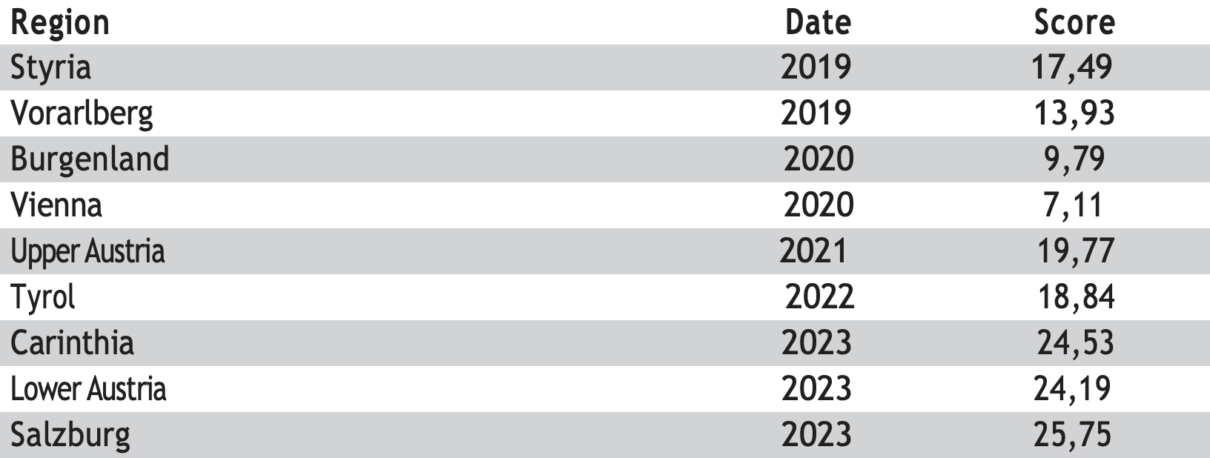
Source :
Bundesländer government websites.
A pessimistic electorate. At the start of 2024, Austrians were rather concerned26: when asked “Do you look to the near future with optimism and confidence, or rather with worry and pessimism?”, 45% chose the latter option (compared to 20% at the end of 2019 and 36% at the end of 2020, a year marked by the pandemic). By 2024, only 26% are optimistic about the near future.
When asked whether the federal government will take appropriate measures for Austria’s future, 57% of those surveyed expressed serious concern that it would not, a sharp increase compared to years prior to 2024 (48% in 2023 and 33% in 2019). These figures reflect a negative assessment of both the political system and its’ elites.
Pessimism with regards to the economic situation is widespread among the population: one in two people expect a global economic crisis to occur in 2024, and only 31% of those questioned expect Austria to witness an economic recovery. The FPÖ consistently capitalizes on this theme. Concerns about potential restrictions on democratic rights have been on the rise for some time, particularly among those aligned with the FPÖ. They express apprehension about the influence of “hidden powers” (reference to the Deep State)27 and the establishment of a “State surveillance”28.
In conclusion, FPÖ voters express a high level of concern in almost all areas, with the exception of climate change. On the international stage, 45% of respondents expect a new armed conflict in Europe. Only 15% believe in a European solution for the distribution of refugees. Finally, 85% do not believe in a rapprochement between the USA and Russia.
Question: Are you optimistic or pessimistic about the year ahead?

Source :
Unique Research survey, December 2022 [online].
The sociological profile of the FPÖ electorate in 2019
National Council elections (legislative elections); European elections.
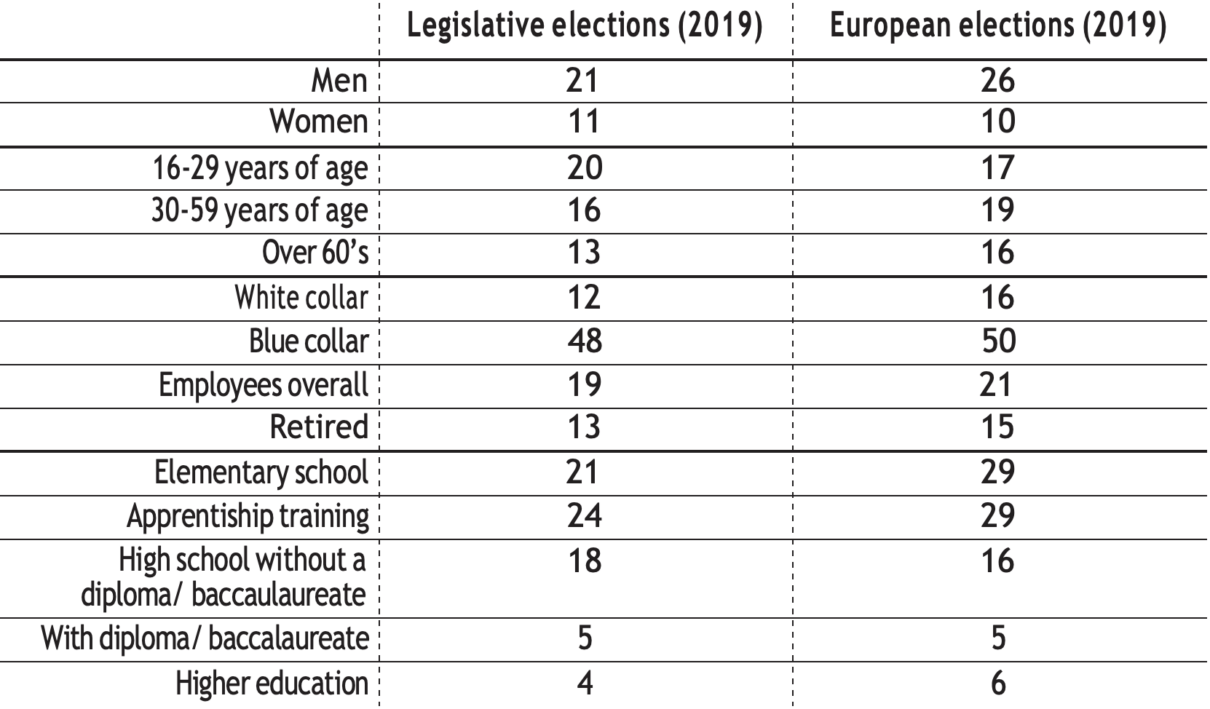
Source :
Sora [online].
The FPÖ and Austrian opinion. On a national level, a long series of concordant polls make the FPÖ the leading party in Austria, whether in national or European elections.
Voting intentions for the National Council elections
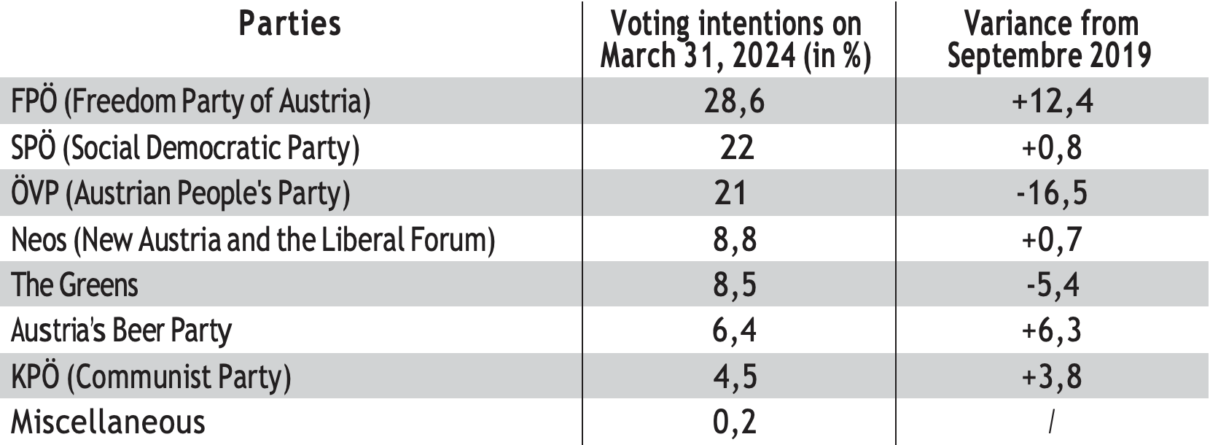
Source :
Current Election Trend for Austria, PolitPro [online].
The FPÖ and Europe: an ideological challenge and an electoral issue
Austrians remain in favor of the European Union, but skeptisicim is on the rise
See ÖGfE-Umfrage, “Klare Mehrheit in Österreich für EU-Mitgliedschaft, aber unklares Meinungsbild zu mehr oder weniger Europa” [online].
Ibid.
Eurobarometer, Standard 100 – Autumn 2023. Public opinion in the European Union, national report for Austria.
ÖFfE-Umfrage, op. cit.
Walter Müller, “Parteitag: FPÖ will Schilling wieder einführen” Der Standard, December 7, 2013 [online].
The Österreichische Gesellschaft für Europapolitik (ÖGfE) survey in January 202429, shows that 66% of those questioned believe that Austria should remain a member of the European Union. However, analysis of the 68 ÖGfE polls carried out since June 1995 clearly shows that while supporters of EU membership have always been in a clear majority, a deterioration has been underway since December 201930. Back then, only 8% were in favor of leaving the EU, compared with 29% in 2024.
The Eurobarometer survey at the end of 202331 shows that 38% of Austrians have a positive image of the EU, 38% a neutral image and 24% a negative image. When it comes to strengthening joint action at European level, the population is divided. In September 2023 (ÖGfE poll), 43% of those questioned – 8% more than in May 2022 – wanted States to reclaim more control. This aligns with one of the FPÖ’s key demands.
In January 2024, 54% of those surveyed said they had a “Very high” (15%) or “High” level of trust in the euro (39%)32. 42% expressed “low” (25%) or “very low” (17%) levels of trust in the single currency. The FPÖ is targeting this electoral potential, made up of skeptics and critics of both the euro and EU financial policy33, but has discarded the idea of a return to the schilling34. Instead, their current focus is on opposing the phase-out of cash35 and the introduction of a European virtual currency.
Trust in euro (2010 – 2024)
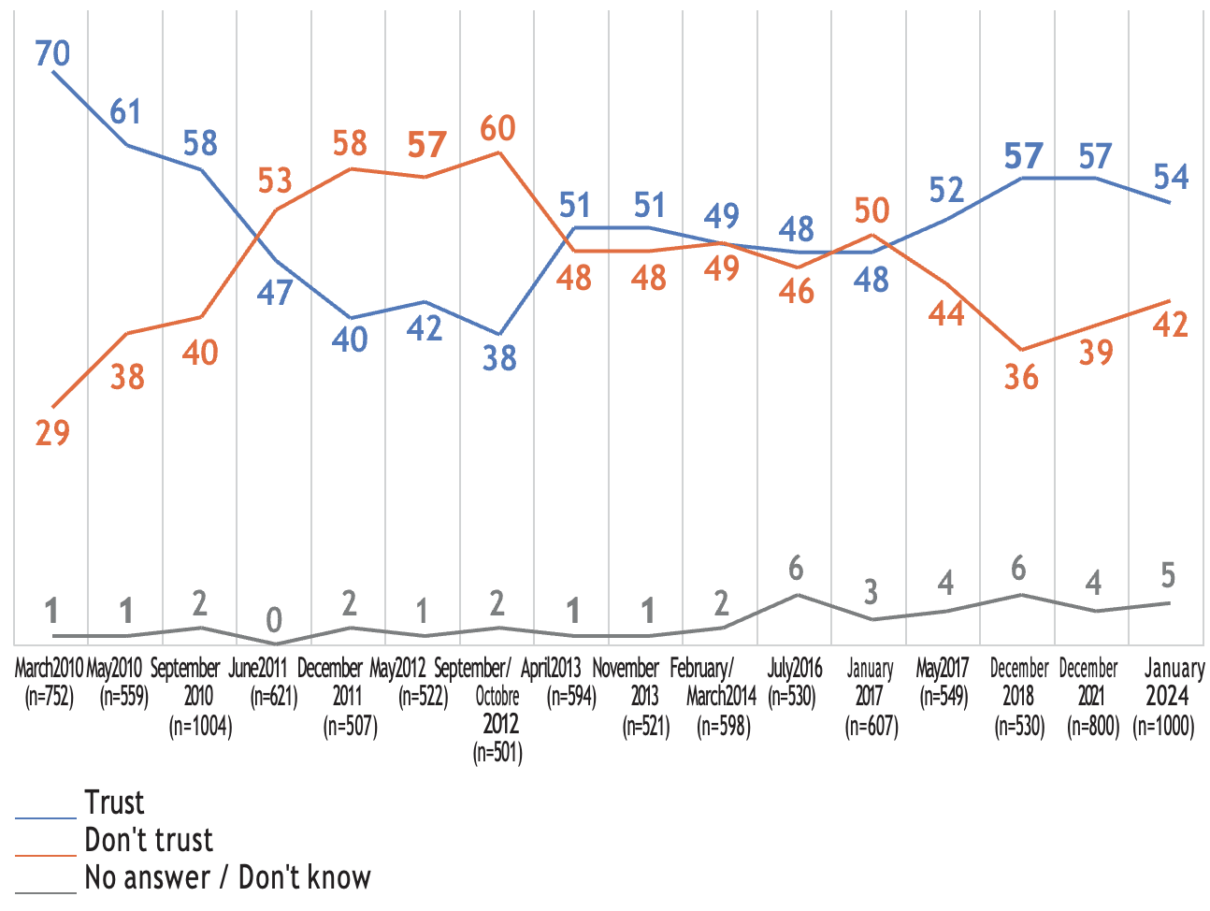
Source :
“ÖGfE-Umfrage: Mehrheit vertraut der gemeinsamen Währung, digitaler Euro noch großer Unbekannter”, Österreichische Gesellschaft für Europapolitik, January 9, 2024 [online].
Austrians’ support for the European Union
Question: “In your opinion, should Austria remain a member of the European Union, or should it leave?” (1995-September 2023)
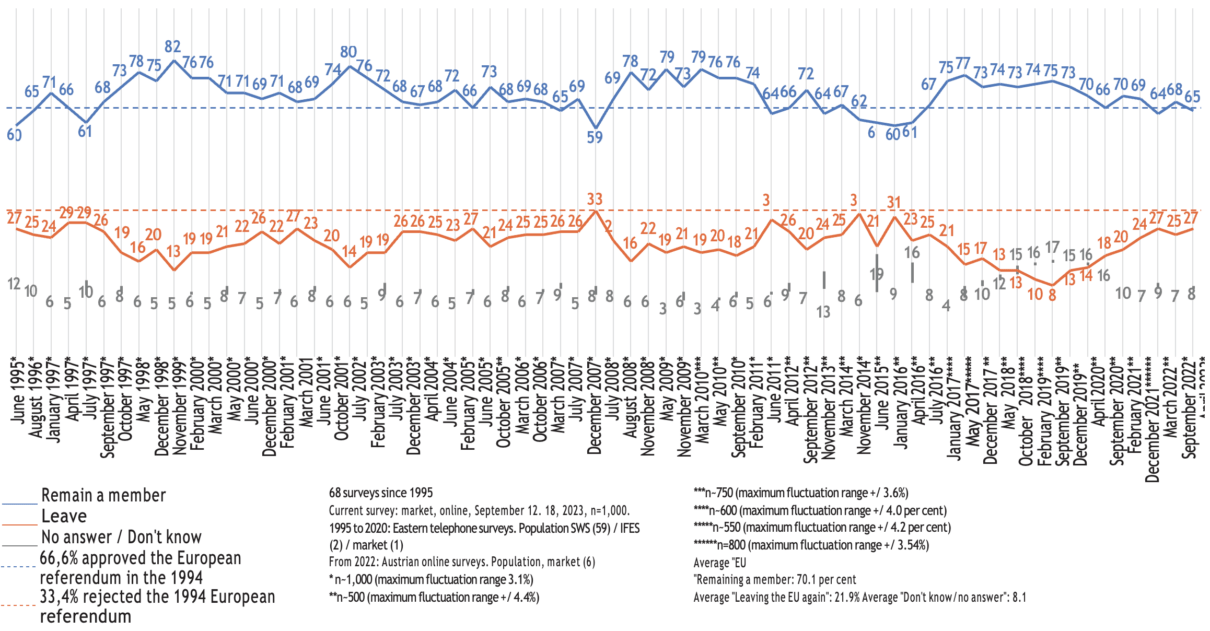
Source :
“ÖGfE-Umfrage: Klare Mehrheit in Österreich für EU-Mitgliedschaft, aber unklares Meinungsbild zu mehr oder weniger Europa”, Österreichische Gesellschaft für Europapolitik, September 25, 2023 [online].
Eurobarometer, op. cit.
As of autumn 2023, rising prices are the most important personal problem for 49% of Austrians36. Thus, 68% of those surveyed by OEFG refer to the fight against inflation as a “high priority”, 23% a “medium priority” and only 5% a “low priority”. The desire for a European asylum and immigration policy comes second: 59% rate it as a high priority, 27% as a medium priority, while a tenth consider it less urgent.
Defending an “ethnopluralist” Europe
See “Meinl-Reisinger: ‘Rassistische und europafeindliche FPÖ'”, Zeit im Bild, August 20, 2018 [online].
Johannes Pollak and Peter Slominski, “Die österreichischen politischen Parteien und die europäische Integration: Stillstand oder Aufbruch?” in Heinrich Neisser and Sonja Puntscher Riekmann (eds.) Europäisierung der österreichischen Politik? Konsequenzen der EU-Mitgliedschaft, 2002, pp. 177-199.
Johannes Pollak and Peter Slominski, op. cit.
See “Das Programm der Freiheitlichen Partei Österreichs. Beschlossen am 30. Oktober 1997, Kapitel III”.
Johannes Pollak and Peter Slominski, op. cit.
Johannes Pollak and Peter Slominski, ibid.
See “Der EU-Wahlkampf 2009 – am Beispiel der Freiheitlichen Partei Österreichs (FPÖ)”, Universität Wien, p.91-126 [online].
Ibid.
Ibid.
The FPÖ’s attitude towards the European Union and its alliances with numerous national-populist parties have been the subject of intense debate for decades. All democratic parties have accused and continue to accuse the Freiheitlichen of being “Europhobic “37. This claim needs to be examined in the light of both changes in the FPÖ’s position on European integration38, the FPÖ’s official program as well as its alliances.
The FPÖ’s first program, in 1955, stated: “We recognize ourselves in the West and therefore want a European alliance of free and equal nations and states”. The 1964 manifesto “The Salzburg Commitment” aims to “promote the unification of Europe” and supports the creation of the EEC. In the 1966 Bad Ischler program, the FPÖ called for “a pan- European economic, monetary, social and scientific policy”. In the June 1985 program, it stated: “In the search for maximum participation by our country in European integration, we also consider Austrian membership of the EC – subject to neutrality, of course – to be possible and necessary”. Jörg Haider, who became leader of the FPÖ in 1986, was initially in favor of membership of a united Europe. In the early 1990s, the FPÖ’s position changed radically, in line with public opinion. With short-term maximization of votes now a priority for the FPÖ, Haider campaigned on themes that are still relevant today: the right of foreigners to vote and the rising crime rate in the event of membership39.
In its 1997 program40, Austria’s interests are set apart from European interests. The FPÖ differentiates between Europe, which is based on a “community of Western Christian values” and the “diversity of its peoples and ethnic groups”, and the European Union, which represents only one dimension of Europe41. The FPÖ is explicitly opposed to a European federal state, but is nonetheless in favor of a confederal Europe. Jörg Haider called for a clear division of competences between the European and member-state levels, which the FPÖ still demands today. In the FPÖ’s view, European competences should include environmental protection, the internal market, common foreign and security policy, the fight against cross-border crime, the stability of the euro and negotiations with global economic partners. All other areas should be settled at Austrian state level42. In 2024, these themes are all present in the FPÖ’s European campaign.
Following the split with Haider’s BZÖ in April 2005, the FPÖ had only one priority: to rebuild the party and regain electoral ground, a task that would fall to Kickl. The European question took a back seat. The 2009 European elections were nevertheless a success for the FPÖ (12.70%, up 6.4 percentage points on 2004, giving it 2 MEPs). The FPÖ published a six-page mini-brochure for the 2009 campaign, listing the party’s expectations: a halving of Austria’s net contribution to the EU budget; an end to special aid for Turkey; the possibility for the Court of Auditors to monitor European aid policy; a drastic reduction in bureaucracy in Brussels and Strasbourg; an end to social transfer payments to non-European citizens; and an end to “bureaucratic absurdities” such as the light bulb regulation43.
Again, these are current Freiheitlichen campaign themes. The FPÖ resorted to the notion of Leitkultur (dominant culture) and the safeguarding of “the German language”. It calls for a minimum quota of German-language music and films on radio and television, and subsidies for measures to preserve the language and popular culture in the entertainment industry44. These are also themes that will still feature in the FPÖ campaign in 2024. Globalization, the USA and immigration were regarded as main enemies and remained so in 2024. The FPÖ aims to safeguard small and medium-sized enterprises, prohibit the sale of high-tech firms to foreign entities, crack down on tax havens used by major EU corporations, cease unquestioning alignment with US policies, establish reception facilities for asylum seekers beyond EU borders, and compel unemployed foreign nationals to return to their home countries45.
In conclusion, examining this 2009 program reveals that it still forms the core of the FPÖ’s campaign in 2024. This should come as no surprise: Kickl was its creator in 2009, just as he is in 2024.
Like the state and the nation, the FPÖ primarily defines Europe in terms of ethnic origin and cultural identity. Here we find a strategy common to many national-populist formations: the culturalization of politics. This is an anti-democratic counter-project, because the notion of culture used by the FPÖ does not refer to the equality of all individuals and to democratic, participatory citizenship, but to the ideal of a closed, authoritarian community characterized by ” traditional values”.
For the FPÖ, it’s not the freedom of the individual but the community that’s at the heart of politics. Behind the theme of a “Europe of indigenous peoples and ethnic groups” lies a conception of diversity within an ethno- pluralist framework, in which closed communities coexist to the exclusion of “others” – in other words, a völkisch and culturalist conception of citizenship.
A culturalist approach reflected in international cooperation
The FPÖ is a member of the European party Identity and Democracy (ID). At the beginning of 2024, this party had 59 members in the European Parliament from 8 different parties: Austria (FPÖ, 3 members); Belgium (Vlaams Belang, VB, 3 members); Germany (Alternative für Deutschland, AfD, 9 members); Estonia (Eesti Konservatiivne Rahvaerakond, EKRE, 1 member); France (Rassemblement national, RN, 18 member); Italy (Lega, 23 member); Denmark (Dansk Folkeparti, DF, 1 member) and the Czech Republic (Svoboda a přímá demokracie, SPD, 1 member).
The ethnocentric nature inherent in the programs makes it difficult for them to form lasting alliances at international level, due to the many border disputes in Europe. One of the best-known examples is the South Tyrol question, which has always been a source of tension between the FPÖ and its Italian partners (particularly Fratelli d’Italia). Nevertheless, there is a great deal of ideological convergence, particularly when it comes to perceived “threats” to national identities. During the Antwerp meeting on June 23, 2022, these parties adopted a programmatic catalogue which included: rejecting the introduction of transnational lists and the standardization of electoral laws; rejecting the introduction of qualified majority voting and the conditionality mechanism; opposing the establishment of a European army; rejecting the EU’s migration policy.
The FPÖ is well aware of the weakness of the European nationalist and eurosceptic parties in the European Parliament. The European Conservatives and Reformists (ECR) group, with 68 elected members from 20 parties representing 16 countries, is a fraction a priori close to ID. Among the national-socialist formations that belong to it are Perussuomalaiset (Finland), Fratelli d’Italia (Italy), Tēvzemei un Brīvībai/ Nacionālā apvienība (Latvia); Schwedendemokraten (Sweden); Vox (Spain); ANEL (Greece), and, more recently, Reconquête! (France). Ideologically, these parties are close to the FPÖ, although the Russophilia and anti-Americanism of the Freiheitlichen set them apart. Speculating on the success of the national-populist formations, Kickl hopes for a strategic union of these parties in the European Parliament, which he calls a “common house”, and whose purpose would be to block reforms by the European Commission that were deemed harmful.
The campaign for the 2024 European elections
Priority themes in public opinion
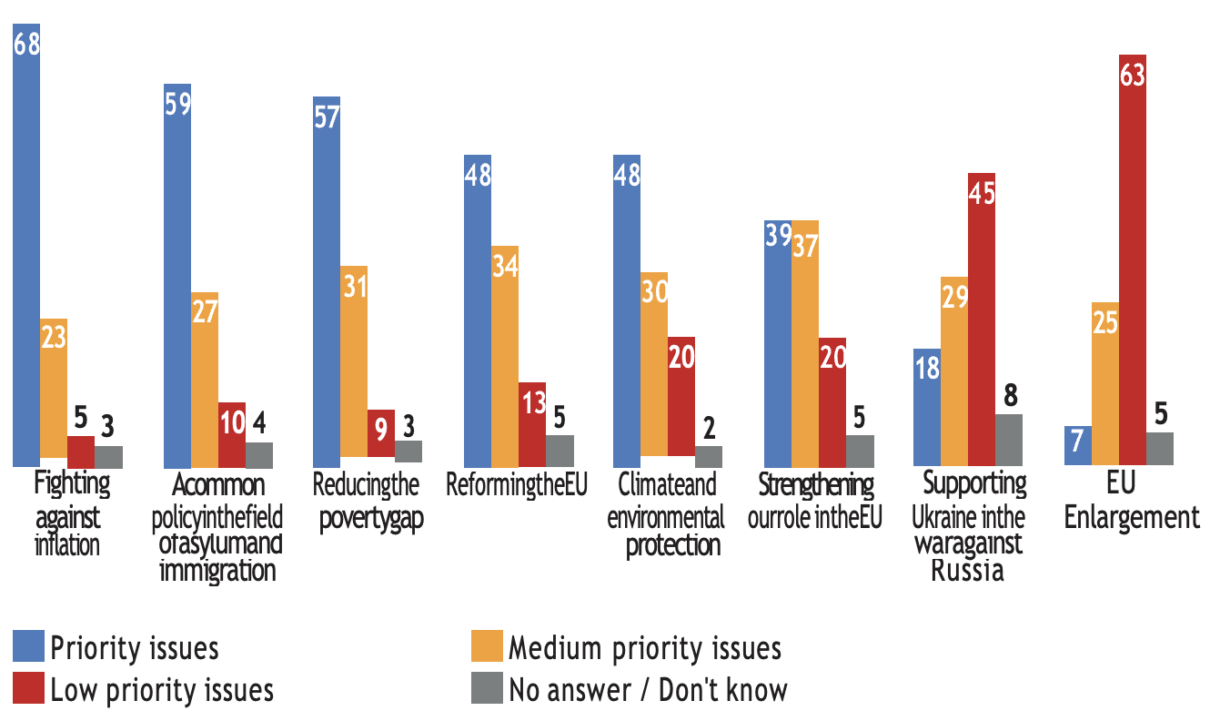
Source :
“ÖGfE-Umfrage: Europawahljahr 2024 – 68 Prozent sehen Bekämpfung der Teuerung als Hauptpriorität”, Österreichische Gesellschaft für Europapolitik, January 20, 2024 [online].
Standard Eurobarometer 100: Die öffentliche Meinung in der EU. Länderbericht : Österreich [online].
Climate issues have fallen drastically, support for Ukraine has weakened, and there is little support for EU enlargement (particularly to Ukraine and Turkey).
Two-thirds of Austrians consider Russia’s war against Ukraine a threat to EU security (66%). A significant majority (62%) support the imposition of economic sanctions against Russia (compared to an EU average of 72%). A ban on Russian state media such as Sputnik and Russia Today is approved by 66% of those surveyed. When it comes to granting humanitarian aid to people affected by the war in Ukraine, most Austrians are in favor (83%); and 78% agree that their country should take in war refugees from Ukraine. Given these sentiments, the FPÖ’s pro-Russian stance and opposition to Ukrainian immigration may be viewed unfavorably by the public.
On the contrary, a feeling of unease with the system and the policies pursued benefits the FPÖ. According to Eurobarometer, only 37% of Austrians feel that things are moving in the right direction in their country, while 45% think things are going in the wrong direction. Admittedly, 61% are still satisfied with the country’s democracy. However, people with less than a baccalaureate (43%), blue-collar workers (49%) and people who have difficulty paying their bills (43%) are less satisfied with Austrian democracy, and at the same time feel that their voice is not being heard (43%). This sociography aligns with the analysis of the FPÖ electorate46.
An important aspect of Austria’s discontent lies in the realm of justice47. In 2024, 54% of those questioned thought that Austria was not a fair country overall, while only 34% took the opposite view48. Those close to the FPÖ (71%), the Social Democrats (53%) and those not close to any party (54%) mostly perceive society as unfair – whereas supporters of the ruling coalition tend to think Austria is a fair country (58% for ÖVP supporters and 48% for Greens). At the end of 2023, APA-OMG published a study on Austrians’ trust in institutions, the results of which reflect this collective discontent49.
What the Austrians expect in 2024.
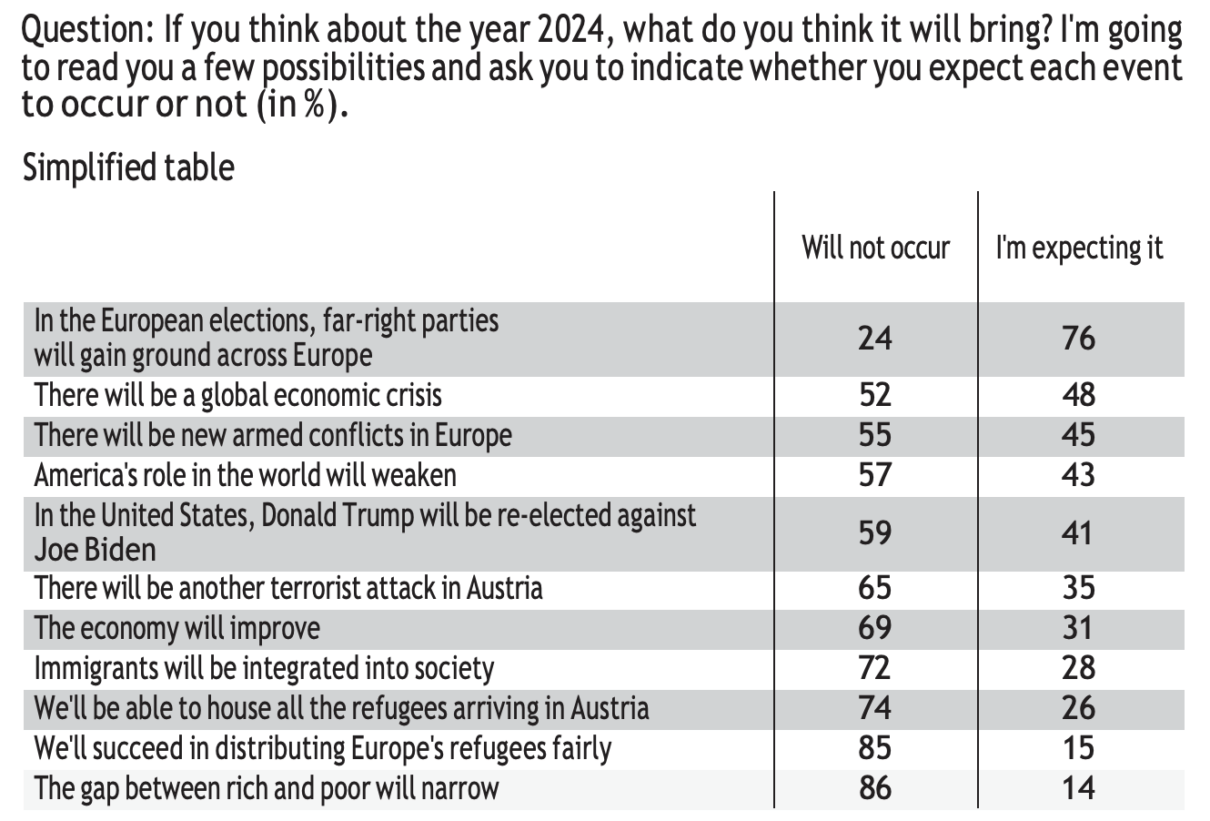
Source :
Der Standard [online].
The FPÖ on the campaign trail: immigration, security, gender, the deep state and Covid-19…
The FPÖ is closely associated with the themes of immigration, Islam and internal security, which are of great concern to the Austrian people.
Immigration: how do Austrians feel about living alongside immigrants? (in %)

Source :
“Wie bewerten Sie das Zusammenleben zwischen Österreichern und Zuwanderern in Österreich?”,Statista, October 2023 [online].
Islam: how do Austrians rate the cohabitation of Muslims and non-Muslims in Austria? (in %)

Source :
“Wie bewerten Sie das Zusammenleben zwischen Muslimen und Nicht-Muslimen in Österreich?”,Statista, October 2023 [online].
The debate on Islam and Islamism following the terrorist attacks in Paris in 2021 has left its mark on Austrians: 69% of those questioned believe that Islam does not belong in Austria. A poll conducted by Unique Research shows that only 7% of Austrians “strongly” agree with the statement that “Islam is part of Austria”, while 42% respond: “Definitely not”. Three quarters of those questioned want Austrians who have fought in the ranks of Islamic fundamentalists to be stripped of their nationality, with only 5% categorically opposed50.
Crime: In your opinion, how has crime evolved in Austria in recent years? (in %)

Source :
ORF fragt, March 20, 2024 [online].
Crime in Austria. How do you think crime has evolved in Austria in recent years?

Source :
ORF fragt, March 20, 2024 [online].
OTS, “FPÖ – Ecker: “Gendern stiftet Verwirrung, wirkt egen Grammatik und Rechtschreibregeln!””, September 21, 2023 [online].
Vienna Online, “Political Correctness”: Viertel der Österreicher sagt aus Angst seine Meinung nicht mehr”, December 14, 2023 [online].
Martin Gebhart, “FPÖ will die Freimaurer in Politik und Justiz aufspüren”, Kurier, December 11, 2023 [online].
OTS, “FPÖ – Nepp/Krauss: Der palästinensische Angriff auf Israel ist auf das Schärfste zu verurteilen”, October 18, 2023 [online].
OTS, “Stocker: «Die Gleichgültigkeit der Kickl-FPÖ gegenüber Terrorismus ist inakzeptabel»”, December 4, 2023 [online].
Unique Research, “Profil-Umfrage: Solidarität mit Israel im neu aufgeflammten Krieg”, October 16, 2023 [online].
Bundeskanzleramt, ” Bundeskanzler Nehammer: « Bundesregierung schließt Corona-Aufarbeitungsprozess ab » “, December 21, 2023 [online].
Tiroler Tageszeitung, “Nach NÖ-Wahl: Je geringer die Corona-Impfquote, desto stärker die FPÖ”, January 31, 2023 [online].
See Gallup Institute, “Corona im Herbst: Überwiegend Gelassenheit” September 27, 2023 [online] and “Rückblick auf drei Jahre Pandemie: Österreich auf der Corona-Couch” , March 14, 2023 [online].
OTS, “FPÖ – Hauser und Universitätsdozent Strasser präsentierten Buch “Die gestohlene Normalität””, January 19, 2024 [online].
Michael Butter, “Covid Conspiracy Theories in Germany, Austria, and Switzerland” in Michael Butter and Peter Knight (eds.), Covid Conspiracy Theories in Global Perspective, 2023, pp. 208-220.
The survey shows that the population is convinced that crime has increased in recent years. However, 89% of those questioned believe that Austria is safe compared to other countries, while 10% think the opposite.
– The gender question. Gender is a divisive issue in Austria. Chancellor Nehammer’s ÖVP, for example, wants to ban the special characters used for “gender neutral ” language within public administration. A proposal rejected by the Greens, but supported by the FPÖ, which is calling for its banning in schools and universities.51
Opinion polls prove Kickl right in his anti-Woke offensive, with only 14% of those surveyed in favor of the use of inclusive writing in government52. Wokism has encountered little success in Austria: 59% of those questioned felt that identity-related themes were over-represented in politics, that politics was too concerned with gender-neutral language, 43% saw too much focus on the rights of the LGBTQ community, and 39% considered that the “diversity” issue is over-represented. Similarly, 39% of those questioned felt that “political correctness” has gone too far, 23% felt it was appropriate, and 26% would like to see it used more. Notable differences emerge according to age and political orientation. While 42% of the over-30s think that “political correctness” has gone too far, this proportion is only 29% among the under-30s. Supporters of the Greens and the SPÖ are the most inclined to deplore a lack of “political correctness”, while those of the FPÖ tend to speak of its excess.
– The issue of “hidden powers”. The FPÖ has always maintained that the world order is dominated by hidden powers. Today’s Deep State discourse has been imported from the American Alt-Right, and features in the rhetoric of the FPÖ and identitarians. Kickl also makes reference to the Freemasons. In two parliamentary questions posed in December 2023, FPÖ General Secretary Christian Hafenecker asked ÖVP Interior Minister Gerhard Karner and Green Justice Minister Alma Zadić how many of their ministry or cabinet staff were Freemasons53.
Finally, Kickl also uses the anti-Semitic rhetoric of the Jews and the State of Israel as part of these “hidden powers”. The Austrian Jewish community is extremely hostile to Kickl, a hostility he does not refrain from exploiting. His anti-vaccination slogan “Vaccination makes you free” is accompanied by the wearing of a yellow star with the inscription “not-vaccinated”. However, the FPÖ remains cautious when it comes to racial anti-Semitism, denouncing, for example, the anti-Semitism of migrants54 while denying that of the FPÖ, despite its public outbursts.
While the FPÖ has condemned the Hamas aggression55, It is also opposed to supporting Israel56. Here again, Kickl has not lost sight of the polls57. 57% of Austrians agree with the statement “Israel deserves our full solidarity. Nothing can justify the Hamas attack on Israel” (31% “very” and 26% “rather” agree), while 16% “rather disagree”, and 12% do “not at all” agree. FPÖ voters express the least solidarity with Israel: 43% say they agree, a proportion similar to those who say they disagree (40%).
– The Covid-19 pandemic. Austria is trying, as best it can, to reflect on the policies put in place during the pandemic, and of the mistakes made58. The FPÖ and its leader have been the main supporters of the anti-vax movement in Austria, benefiting both electorally59 and politically60. Even as the pandemic subsides, the FPÖ continues to emphasize this stance, making it a key element of its propaganda for its European campaign.
In January 2024, the FPÖ took advantage of the presentation of the book Die gestohlen Normalität (Stolen Normality) by Hannes Strasser and Gerald Hauser to launch a full-scale attack on the World Health Organization (WHO) and the World Economic Forum. The first author, Hannes Strasser, a doctor and university lecturer who is an active member of the anti-vax movement, presented his vision of the pandemic in language echoed by Kickl in his campaign speeches61 suggesting that: lockdowns had caused more harm than the virus itself, and insinuating that vaccinated individuals were being treated as experimental guinea pigs, at higher risk not just for Covid but also for cancers. The second author, Gerald Hauser, asserted that a ” healthcare dictatorship ” was looming, and warned against a Chinese-style Orwellian state. He declared that “for decades, preparations have been underway for a world government under the aegis of the UN”, of which the WHO could be “the executive body”.
The FPÖ continues to embrace conspiracy theories62. However, it is difficult to measure how effective this propaganda is for the current campaign. The economic crisis, Austrian neutrality, inflation and immigration remain far more central themes for the party’s future. The Russian question, which the FPÖ is trying to keep out of its campaign, is also important. To avoid any mention of the FPÖ’s close relations with Putin, or even possible financing, Kickl focuses his speeches on the economic side of relations with Russia, calling for sanctions to be lifted, trade and gas and oil imports to resume, and advocating strict neutrality, excluding any support for Ukraine. In his view, inflation is one of the consequences of anti-Russian policy63. He also stresses the danger of war in Europe, and criticizes the role of the USA and NATO in Putin’s process of ideological radicalization64.
The various strategies implemented on multiple fronts appear to have borne some fruit, if the polls are to be believed. Even so, the FPÖ is far from obtaining a majority, and is trapped in a situation that could shift at any moment.
The FPÖ’s competitors
At the end of January 2024, the Gallup Institute survey asked Austrians which parties they trusted to meet the current challenges65. The SPÖ was the clear winner when it came to social and health issues (44% trust the party on these issues), followed by the ÖVP (23%), the FPÖ (22%) and the Greens (22%), while the FPÖ came out on top when it came to immigration (39%). The ÖVP, which is also campaigning on this issue, scored just 22%, even less than the SPÖ (23%). The ÖVP leads on economic policy, but only just (33%), barely ahead of the SPÖ (30%) and the FPÖ (24%). On the subject of energy policy, the ÖVP, SPÖ and Greens are almost neck and neck (25-27%), while the FPÖ again leads on internal security (38%, ÖVP 29%, SPÖ 26%, Greens 11%).
When asked which parties are favored by the current context, 66% of those questioned cited the FPÖ, 18% the ÖVP and 6% for the Greens, who are paying the price for their participation in the current government.66
In the event of a direct election of the Chancellor, Herbert Kickl also came out on top, with 21% of the vote, against 17% for Nehammer (ÖVP), 14% for Babler (SPÖ), 9% for Meinl-Reisinger (NEOS) and 3% for Kögler (The Greens)67.
In your opinion, which political party is capable of meeting the challenges in these policy areas ? (in %, multiple answers possible)
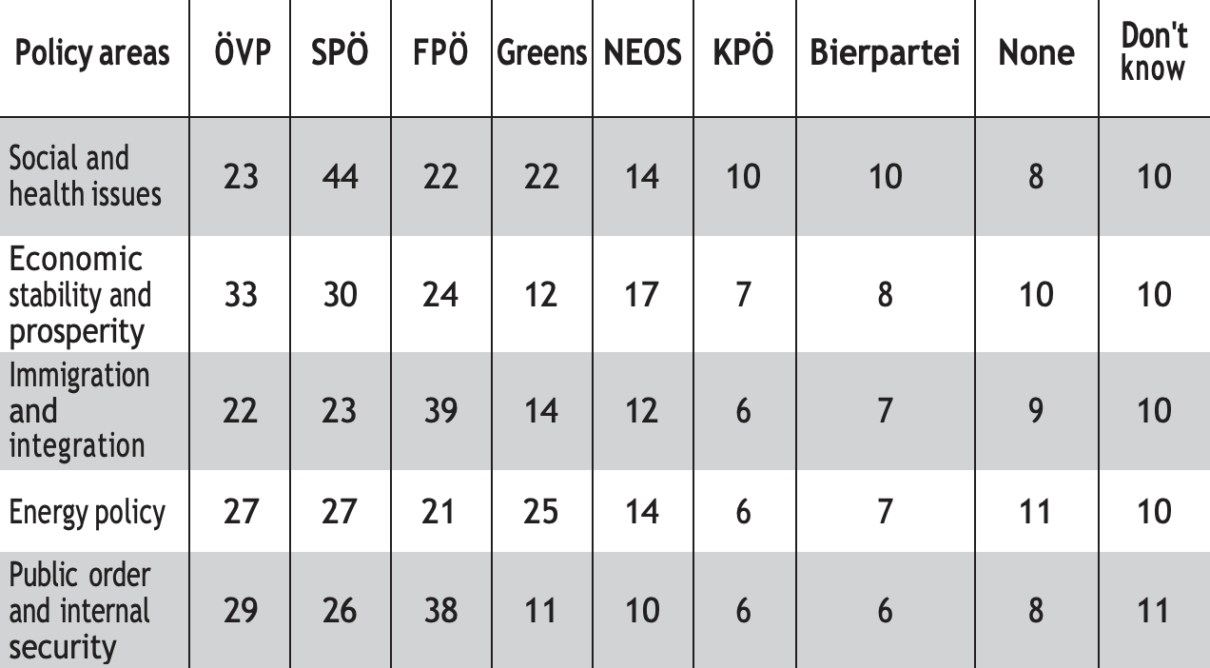
Source :
Gallup Institute, 1st February 2024 [online].
The ÖVP crisis deserves special attention: with the party experiencing a decline in it’s support, it is losing voters to a number of other parties, but particularly to the FPÖ: 30% of voters who now say they will vote for the FPÖ voted for the ÖVP in 2019. The ÖVP is unable to attract voters from other parties. To turn things around, at the end of January 2024 the ÖVP began its election campaign for the European elections and the election to the National Council.
In a speech entitled “The Plan for Austria”68, Chancellor Nehammer outlined his strategy for curbing the FPÖ’s growing influence. The aim was also to erase the turquoise legacy of former Chancellor Kurz. The Greens and the SPÖ, as coalition partners, were also subjected to targeted criticisms. An 82-page program was released to coincide with the speech. Its aim was both to convince FPÖ supporters to join the ÖVP, and to meet the expectations of the ÖVP’s traditional supporters. The method chosen was to use similar content, but presented differently.
The keyword of his discourse is “dominant culture” (Leitkultur), which should make it possible “to rule on behaviors that oppose our fundamental values”. Nehammer does not want “partisan political experiments”, and refuses to compromise with the positions of the SPÖ and the Greens, who advocate a certain tolerance. Neither the granting of citizenship nor the right to vote should be “relaxed”.
The ÖVP’s approach to migration is almost identical to that of the FPÖ: the ÖVP wants to conclude deportation agreements with the countries from which refugees originate, and to end state aid to people who have been refused asylum and “are not taken back” by their home country. Social benefits for migrants will only be granted after five years’ residence in the country. Those unsuccessful in their asylum claims would face restricted freedom of movement. Chancellor Nehammer also advocates for providing benefits in kind rather than cash and conducting asylum procedures outside of Europe. Additionally, migrants would be required to fund their own asylum procedures, with the government authorized to seize valuables and cash, similar to Denmark’s Jewellery Law, to ensure payment69.
The climate issue reveals the profound differences with the Greens. Nehammer expressed his support for “technological openness” with regard to combustion engines, i.e. hydrogen. He opposes the outright banning of combustion engines by the EU unless e-fuel cars prove to be more polluting. Nehammer makes “energy self-sufficiency” a key objective.
For the ÖVP, democracy must defend itself. To achieve this, Nehammer wants more professional soldiers and militiamen, as well as a “clear commitment” to neutrality. In the field of internal security, Karl Nehammer advocates zero tolerance for crime and tougher penalties for repeat offenders, including climate activists.
The EU is the subject of muted criticism. Brussels is urged to “refocus” the Union on economic issues, and to show restraint “when it comes to rules for people’s everyday lives”, which Kickl also calls for. Nehammer advocates “adapting the EU treaties if the EU fails to provide answers to the big questions”, a vague but threatening statement.
The ÖVP’s extensive “copy and pasting” of the FPÖ’s program poses risks for the conservatives, who are constrained by their coalition with the Greens and thus struggle to enact desired policies. There’s a concern that the FPÖ’s program could be perceived as the original, overshadowing the ÖVP’s efforts. However, this program for Austria sets the stage for a potential joint government program between the ÖVP and the FPÖ. It is founded on shared principles such as opposition to immigration, differing ecological perspectives, emphasis on workers’ interests, and alignment with patriotic, family-centric, and economically liberal values.
FPÖ results in European elections (1996-2019)

Source :
Europawahlen, bmi.gv.at [online].
The main reason for this success was the inability of both the Christian Democrats of the ÖVP and the Social Democrats of the SPÖ to preserve their traditional circles. Young people are also moving away from the “old” parties, and gravitating towards the FPÖ and the Greens.
In 2015, the FPÖ stepped up its anti-migration campaign and made strong gains in regional elections. It is also the leading party in the opinion polls. In 2016, Norbert Hofer led the first round of the presidential election. In the second round, he was narrowly beaten by Alexander Van der Bellen.
In 2017, the ÖVP was taken over by Sebastian Kurz. The FPÖ fell in the polls, but remains at a high electoral level. On October 15, 2017, the party won 26% of the vote. A Turkish-Blue coalition (FPÖ-ÖVP) led by Chancellor Kurz is formed, with Strache becoming Vice-Chancellor.
The Ibiza scandal turned the political system on its head. In the summer of 2017, Strache had met the supposed niece of an oligarch in Ibiza and is secretly filmed on the occasion. On May 17, 2019, the video is made public. Strache resigned as vice-chancellor the following day. Kurz terminates the coalition. On May 26, 2019, the FPÖ again obtains 17.2% in the European elections, a moderate loss of 2.5 percentage points.
However, several other incidents tarnished the FPÖ’s reputation. On August 12, 2019, police raided Strache’s home on suspicion of corruption related to the appointment of FPÖ member Peter Sidlo as the financial director of Casinos Austria. On September 23, Strache faced public accusations of misusing party funds for personal expenses, triggering a second legal investigation. The fallout was evident in the National Council elections on September 29, 2019, with the FPÖ’s support plummeting to 16.2%, a nearly 10-point decline. In the Vienna regional and municipal elections on October 11, the FPÖ experienced a drop of over 23 points. Strache was subsequently expelled from the FPÖ on December 13, 2019.
On June 19, 2021, Herbert Kickl was elected president of the FPÖ with 88.24% of the vote. The pandemic allowed the FPÖ to stay stable, due to its leadership in the anti-vax movement.
Voting intentions for the European elections (February 2024)

Source :
Current Election Trend for the European Parliament Elections in Austria, PolitPro [online].
What’s striking about these results is the weakening of the ÖVP, the rise of the SPÖ and the relative weakness of the Greens. In February 2024, the FPÖ’s main competitor is the Social Democratic Party. A break-up of the ÖVP-Green coalition before the European elections now seems unlikely, as both parties want to use the remaining months of power to climb back up the rather steep electoral slope.
Even in the event of success in European and national elections, the President of the Republic has the power to prevent Kickl from becoming Chancellor. However, the FPÖ as a party could form an alliance with the ÖVP under new leadership (perhaps that of Magnus Brunner), a constellation that the President of the Republic – anxious to avoid a major constitutional crisis – could tolerate. Other scenarios are also possible, such as a grand ÖVP/SPÖ coalition, a SPÖ/Green/Neos coalition, an ÖVP/ Green/Neos coalition…
What are the reasons behind the FPÖ’s current strength? The issue of immigration control is central to the FPÖ’s campaign in 2024. And it’s a theme that can win elections, as Kurz’s victory in 2017 demonstrated.
Historically, the FPÖ performs less well in European elections than at national level, due to its electorate’s skepticism towards the EU. Yet, FPÖ leader Herbert Kickl effectively conveyed a sense of urgency for the 2024 elections. The ongoing crisis and its strain on the EU have persuaded the Austrian electorate of the significance of their vote. The FPÖ has incorporated this into its media strategy, demonstrating adeptness in leveraging social networks to its benefit, unafraid to resort to polarization and exacerbation.
Combined with the fact that there are hardly any traditionally party-linked voters left, the FPÖ generates a permanent mobilization from different social segments. Analysis of the Covid-19 pandemic shows how the FPÖ has built its current strength on an anti-establishment discourse:
“We at the bottom against those at the top” remains the flagship slogan.
The Freiheitlichen party has effectively engaged a significant portion of voters by addressing their frustrations. As the polls show, the nature of the discontent favors the FPÖ’s agenda and who is riding the wave of these hot topics. As an opposition party, the FPÖ is in a comfortable, even hegemonic position, not only on the issue of immigration, but also on other key themes such as Austria’s relations with Russia, or the measures taken during the pandemic. The ability of the current coalition to control inflation and immigration will be decisive for the FPÖ’s future. If it fails, the FPÖ could well see itself rise to power.
Afterword
Election to the Austrian national council, September 29, 2024
Election results
The elections to the Austrian National Council – which are the equivalent of the French parliamentary elections – are a political earthquake. They are plunging Austria into a period of instability.
Provisional election results for the main parties with postal voting (October 1, 2024)
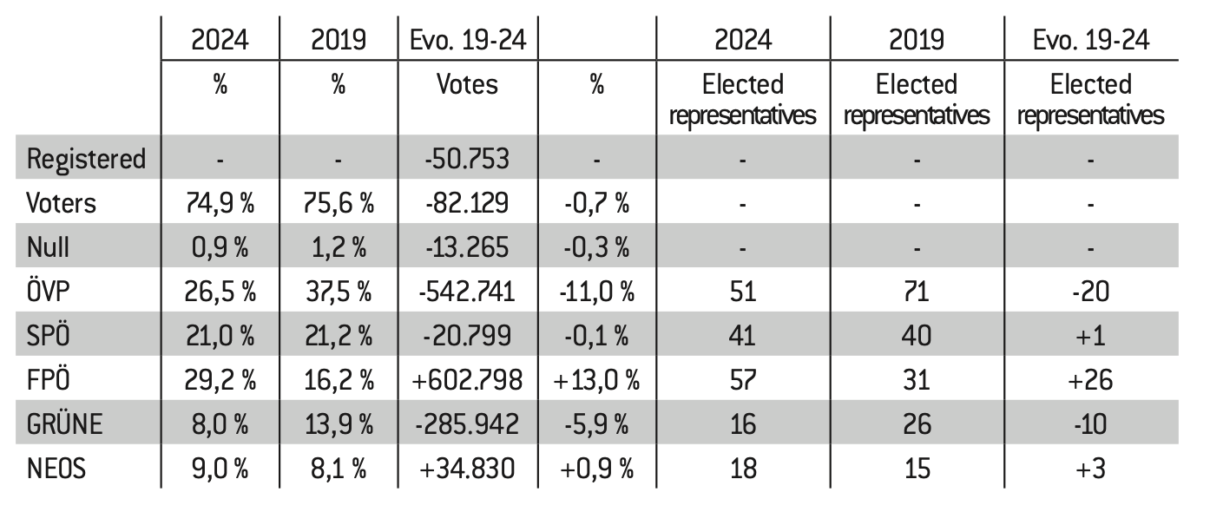
Source :
Bundesministerium, Bundeswahlen [online].
In the National Council elections, the FPÖ became the leading political party. It won 28.9% of the vote, an increase of 11 points (provisional figures) on the previous elections in 2019. The FPÖ will have 57 members of parliament. This a disappointing result for the party, which failed to achieve a blocking minority (62 seats). The right-wing ÖVP party dropped by 11 points, with 26.5% of the vote, while the left-wing social-democrat SPÖ party scored its worst ever result with 21% of the vote. The liberal NEOS party came in at 9%, with the Greens at 8%. One surprise of the election was the poor performance of the smaller parties, with the Bierpartei receiving 2% and the Austrian Communist Party 2.3%. The incumbent ÖVP-Green coalition faced a voter backlash, securing just 38% of the vote.
The economic situation
Jürgen Klatzer, Yilmaz Gülüm and Sabina Riedl, “Wohlstand im Programmcheck”, ORF, September 17, 2024 [online]. Christoph Ivanusch, “Nationalratswahl 2024: Wofür stehen die Parteien, und was ist ihnen wichtig? “, Der Standard, September 23, 2024 [online]; ORF, “Die Schwerpunkte der Parteien “, September 28, 2024 [online].
See Der Standard, “Arbeitslosigkeit stieg im August um zehn Prozent auf 352.000”, September 2, 2024 [online].
In contrast to 2019, the election campaign has focused intensely on economic issues70 : beyond the usual discussions about reducing taxes and easing the burden on businesses, the debate has centered on the causes of the current economic crisis, including trade relations with Russia, immigration costs, and inflation.
With unemployment at 6.7% (147,215 people), Austria is facing a worrying surge in joblessness, which is worrying voters71. The sharp drop in job vacancies (-15.5% year-on-year) highlights the countries economic difficulties, as reflected in GDP figures: a 0.8% decline in 2023 and no growth in 202472. Bank Austria’s economic analysis noted that ‘the Austrian economy is not taking off.’ This economic pessimism played into the hands of the FPÖ.
Immigration to Austria (2024)
Austria is a land of immigration, with a sharp rise in 2022 (261,937 asylum seekers), a slowdown in 2023 (194,929) and an upturn in 2024. These figures have conditioned the FPÖ73 and ÖVP74 campaigns on immigration. While migratory pressure from the Middle East has eased, illegal immigration is on the rise, prompting both parties to call for measures to close Europe’s borders (see FPÖ program below).
The FPÖ campaign
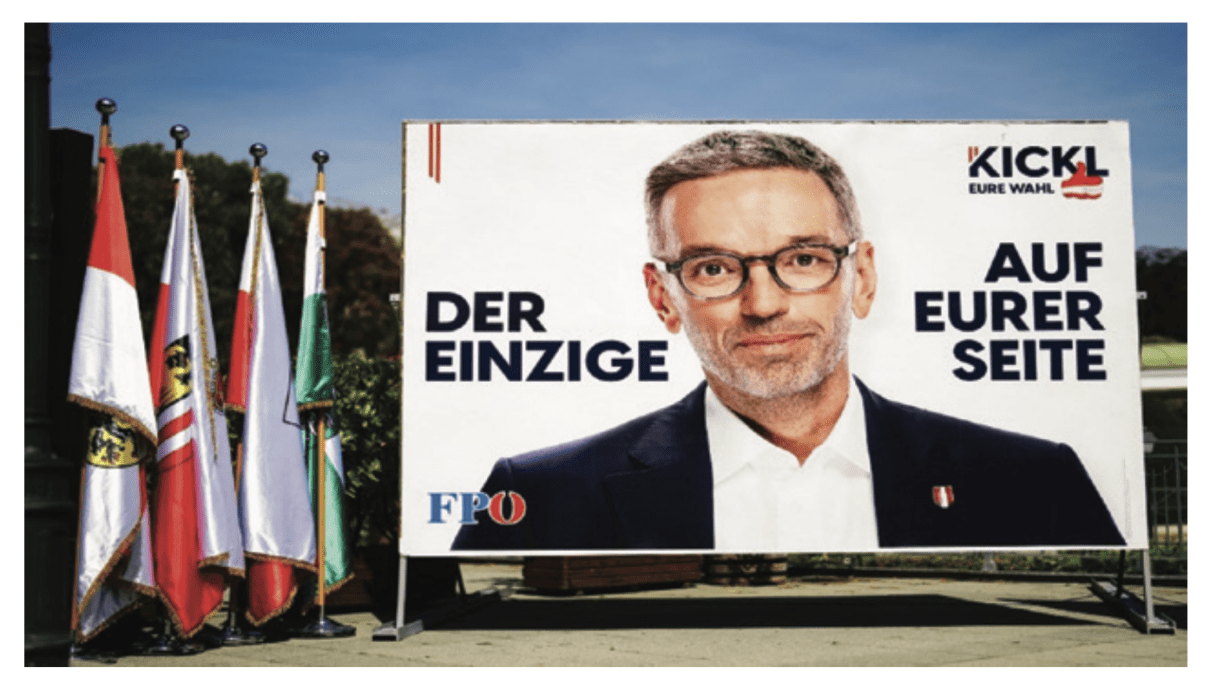
Source :
Die Presse, “Die Mitte zwischen Herz und Hirn – die Plakate”, eine Bewertung, October 10, 2024 [online].
Translation: “The only one on your side”.
Sebastian Fellner, “Herbert Kickl schaut jetzt harmlos aus und plakatiert ein Gebet”, Der Standard, August 23, 2024 [online].
See Die Presse, FPÖ TV statt ORF: Wie Parteimedien den Wahlkampf beeinflussen, October 10, 2024 [online]; See Kurier, “Polarisierend, überzogen, überspitzt”: FPÖ dominiert den Wahlkampf im Netz, September 8, 2024 [online].
In September 2024, the FPÖ adopted a new communications strategy centered around a debonair, smiling Herbert Kickl. The party also introduced new colors, with white replacing the traditional blue and red. Kickl’s frequent smile and what observers describe as his ‘benevolent eyes’ are key elements of this image overhaul, intended to contrast with the party’s otherwise radical electoral platform (see below). Kickl presents himself as a ‘father’ of the fatherland—’benevolent’ yet firm75.
Beyond the televised debates bringing together the political “giants”, which were characterized by a certain aggressiveness and a striking ideological void, the campaign took place above all on social media networks and, for the FPÖ, on its television site and its relays on Youtube, Tiktok, Instagram and Telegram76. This strategy was a success: the party largely dominated its competitors on social networks77.
The FPÖ program in 2024
The FPÖ’s election platform for the National Council elections is 116 pages long78. The text aims to respond to Austrians’ concerns and offer a model for the radical transformation of Austria’s society, culture and political system, based on an illiberal model reminiscent of Victor Orban’s Hungary.
During the presentation of this program at the Palmenhaus in Vienna on August 21, 202479, Kickl explained that the ‘Fortress Austria’ he envisions is built on four pillars: individuality, sovereignty, homogeneity, and solidarity. These pillars, according to Kickl, form the foundation of freedom, which he identifies as the supreme value and central focus of the party’s platform. ‘Freedom is the soul of the program,’ Kickl asserts.
He advocates for a fundamental transformation of the political system through direct democracy. His proposal includes mandatory referendums to compel citizens to take a stand on key issues important to the party, such as the reintroduction of the death penalty or the dismissal of the government or certain members. ‘It must be possible to legislate independently of the will of the National Council,’ the party program states, a head-on attack to parliamentary democracy.
In the cultural sphere, institutions could face financial cuts if they fail to respect the dominant culture and language. The ORF (Austria’s public radio and television) is to be brought under control with drastic funding cuts, aiming to diminish the influence of public broadcasting within Austria’s media landscape.
For Kickl, ‘immigration must be beneficial, not harmful.’ In his view, all of Austria’s problems stem from immigration. Therefore, ‘remigration’ is essential, and to achieve this, asylum laws must be fundamentally reformed. Austria must become a ‘fortress’ through strict border control measures. The Austrian state must regain its ‘full sovereignty,’ which requires withdrawing from certain international agreements, such as the European Pact on Migration. The FPÖ aims to suspend the right to asylum through an ‘emergency law.’ Hungary and Denmark are presented as models to follow80. As the FPÖ considers political Islam to be incompatible with democracy and freedom, the party proposes a specific prohibition law against political Islam, requiring its adherents to leave the country.
To restore Austria’s ‘full sovereignty,’ the party has opposed NATO membership and called for a strong commitment to neutrality.
The FPÖ also advocates for a fundamental reform of the education system. Schools and universities, which the party views as largely hostile environments, must not become ‘experimental grounds’ for gender theory and ‘wokism.’ The FPÖ calls for a constitutional clause stating that there are only two sexes, male and female. The party’s meritocratic education system should encourage talented individuals while rejecting any lowering of standards81.
Kickl places particular emphasis on the family, aiming to protect children from ‘drag queens’ and ‘early sexualization.’ He plans reforms in justice and law enforcement, including lowering the age of criminal responsibility from 14 to 12. Additionally, the police force is to undergo significant recruitment and be better equipped82.
Kickl’s strategy of repositioning the FPÖ as a liberal economic party proved successful in 2024. Among the key measures of its ‘economic patriotism’ agenda are: no new inheritance or wealth taxes, lower corporate taxes for small businesses, the abolition of the CO2 tax, the complete elimination of cold progression, and the removal of ORF (The Austrian Broadcasting Corporation) fees. The party also seeks to prevent ‘capital flight’ by companies and reduce ‘over-bureaucratization.83‘ The FPÖ aims for a zero deficit in the long term, though the funding for these costly measures remains unclear. Ensuring energy security is a priority, which is why fossil fuels, including Russian gas, are seen as essential in maintaining supply84.
Electoral transfers 2019 – 2024
An analysis of electoral transfers shows that former Turquoise (ÖVP) voters and 2019 abstainers contributed more to the FPÖ’s electoral victory than its 2019 electorate.
Electoral transfers 2019-2024 in thousands of votes
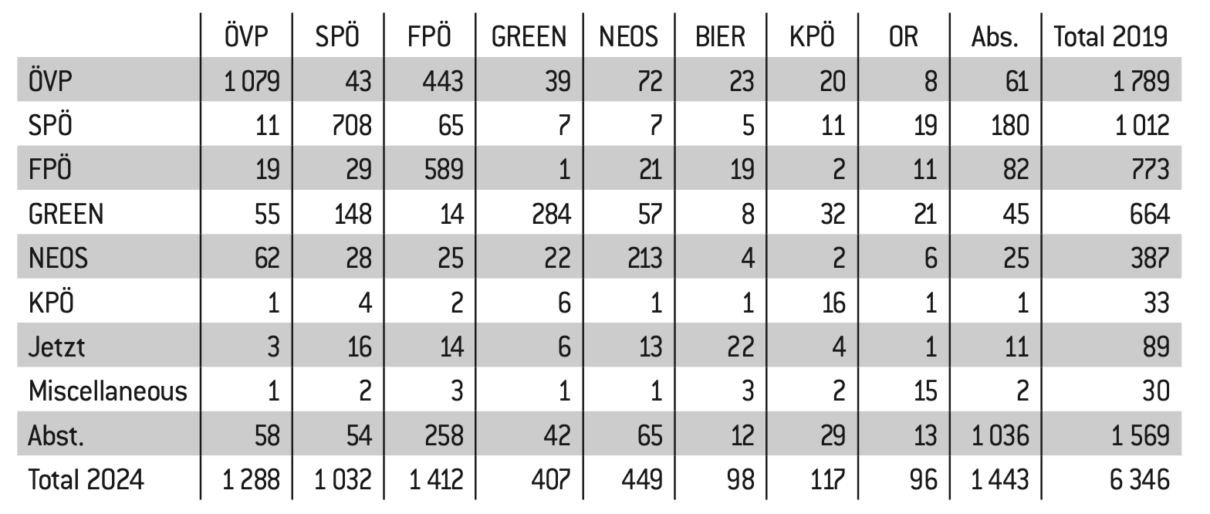
Source :
David Laumer, Katrin Praprotnik, “Nationalratswahl 2024 Wählerstromanalyse und Wahlbefragung”, Foresight, September 29, 2024 [online].
To be read horizontally. Example: 1,079,000 (1,079) ÖVP voters in the 2019 national elections voted ÖVP in 2024, 43,000 SPÖ (43) and 443,000 FPÖ (443).
Of the 1,412,000 people who voted for the FPÖ in 2024, only 589,000 had supported the party in 2019. The FPÖ lost 82,000 votes to abstention, 29,000 to the SPÖ, 21,000 to NEOS, and 19,000 to the ÖVP. However, these losses were more than compensated by the votes gained from the ÖVP (443,000), as well as 258,000 abstainers from 2019 who joined the FPÖ. Additionally, 65,000 SPÖ voters, 25,000 NEOS voters, and 14,000 Greens switched their support to the Freiheitlichen.
The sociography of electorates

Source :
FPOE [online].
Translation: The only one by your side.
See OE24, “Wir sind die Brandmauer”: Energischer Babler beim SPÖ-Wahlkampffinale, September 28, 2024 [online].
David Laumer, Katrin Praprotnik, “Nationalratswahl 2024 Wählerstromanalyse und Wahlbefragung”, Foresight, September 29, 2024 [online].
Nora Schäffier, “Warum immer mehr Frauen die FPÖ wählen: Die Politologin Birgit Sauer erklärt es mit den Versprechen des FPÖ-Parteiobmanns. “Wiener Zeitung, March 4, 2024 [online].
David Laumer, Katrin Praprotnik, “Nationalratswahl 2024 Wählerstromanalyse und Wahlbefragung”, Foresight, September 29, 2024 [online].
Op. cit.
Moritz Leidinger Robin Kohrs Michael Matzenberger, “Wie hat Ihre Gemeinde gewählt? “, Der Standard, September 30, 2024 [online].
Sebastian Fellner Oona Kroisleitner, “Bei wem die Parteien reüssieren konnten”, Der Standard, October 1, 2024 [online].
Moritz Leidinger Robin Kohrs Michael Matzenberger, “Nur zwei Prozent der Blauwähler stimmten wegen Herbert Kickl für die FPÖ”, Der Standard, September 29, 2024 [online].
Ibid.
The available polls show that in 2024, the FPÖ will be a “catch-all party”, given its presence in all segments of society. The “wall of protection” evoked by Babler85 has cracked, and the glass ceiling limiting the FPÖ’s rise to power no longer exists.
Whereas in previous elections the gender gap was very wide, with the FPÖ clearly preferred by men, the 2024 election saw gender parity, with 29% of both men and women supporting the party86.
The FPÖ’s program presents women and their role in traditional terms (the 3 Ks: Kirche, Küche, Kinder/ Church, kitchen, children). Psychologist Birgit Sauer examines the growing adherence of women to national-populist ideologies across Europe. She argues that these parties ‘capitalize on crises such as pandemics, war, and global warming, as many people’s daily lives are increasingly marked by fear and despair. Potential FPÖ voters don’t want to lose their jobs to migrants, nor do they want to give up their prosperity and above all their privileges as members of the white majority87“. This attitude is also shared by many young people between the ages of 16 and 25.
The FPÖ is strongest among men and women under 45 (men 36%, women 32%). The FPÖ is unable to gain a foothold in the 60+ age group (22%), which remains the preserve of the ÖVP (38%). This is also a sign of the ageing of the conservative electorate88. The breakdown by level of education is similar to that of previous elections. The FPÖ is strongest among compulsory school graduates (32%) and apprenticeship voters (40%), while it is weakest among university graduates (15%).
The FPÖ continues to dominate among working-class voters (50%). Retired people tend to reject the FPÖ (21%), preferring the ÖVP (39%)89.
The big cities remain strongholds of the Social Democrats (27.7%), but also of the Greens (12.4%) and NEOS (11.0%), where the FPÖ obtained only 21.7%. On the other hand, the FPÖ is gaining strength in rural areas (31.8%), trailing behind the ÖVP (33%), which historically has a strong presence there90.
The Foresight survey shows that 52% of people who discussed the pandemic very often voted for the FPÖ. The FPÖ has its strongholds in rural communities with low vaccination rates (35%)91.
An analysis of voter timing in 2024 reveals that most FPÖ voters made their decision early, with 82% deciding at least a month before the election. Of those, 45% cited the FPÖ’s ‘substantive positions’ as the reason for their choice (see below)92.
The overall perception of Austria’s development since 2019 is mostly negative for all respondents (57%), and is found in all socio-demographic groups93.
Electoral choice based on approval of the statement: ‘Democracy can be problematic, but it’s better than any other form of government.’

Source :
David Laumer and Katrin Praprotnik, “Nationalratswahl 2024 – Wählerstromnalyse une Wahlnefragung”, Foresight.at, September 29, 2024 [online].
Op. cit.
When asked about their perception of democracy, FPÖ voters display significant skepticism. In fact, nearly half of all Austrians (45%) who are critical of democracy are FPÖ supporters, a trend observed since the 1980s. This skepticism extends to parliamentary politics and the parties represented in the chamber. These findings suggest an authoritarian and illiberal inclination among FPÖ voters.”94
Reasons for voting for the main parties. Simplified table (in %)
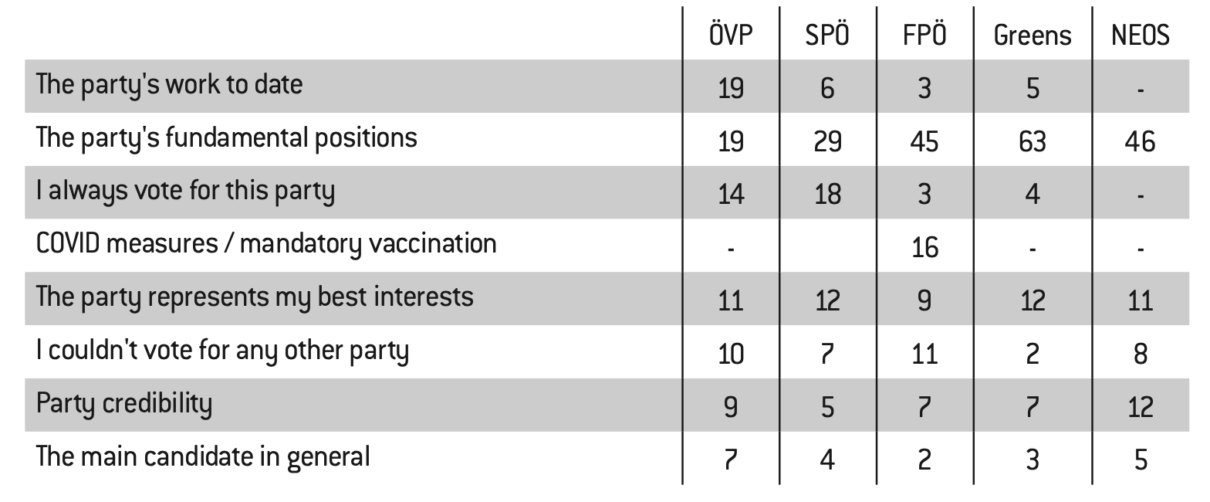
Source :
David Laumer and Katrin Praprotnik, “Nationalratswahl 2024 – Wählerstromnalyse une Wahlnefragung”, Foresight.at, September 29, 2024 [online].
Political options in the aftermath of the elections
Op. cit.
Polls show that a possible ÖVP/SPÖ/NEOS coalition is welcomed by a large minority of those surveyed (ÖVP 32%; SPÖ 33%, NEOS: 67%), while an ÖVP-FPÖ alliance is clearly rejected by ÖVP voters (ÖVP 21%, FPÖ: 74%)95.
Various coalitions are conceivable in the wake of the election. If a majority cannot be found, the President of the Republic, the ecologist Alexander Van der Bellen, may appoint a technical government, pending new elections.
Certain solutions should be ruled out from the outset, particularly the appointment of Kickl as Chancellor. The formation of an ÖVP-SPÖ grand coalition is possible, but the overwhelming majority required for such a coalition could make it fragile. On a personal level, Nehammer (ÖVP) and Babler (SPÖ) do not get along, yet they will need to seek consensus. As the ÖVP does not want the Greens as a partner in a tripartite coalition, this leaves the NEOS as a potential ally. However, the compatibility of this liberal, Atlanticist party with an SPÖ led by an anti-American Marxist is questionable. Such a coalition would likely be difficult to govern and fraught with conflict, and its lifespan could be short. In any case, the FPÖ will remain a powerful opposition force.
The translation of this document from French to English
was executed by Alice Drujon-Candy.

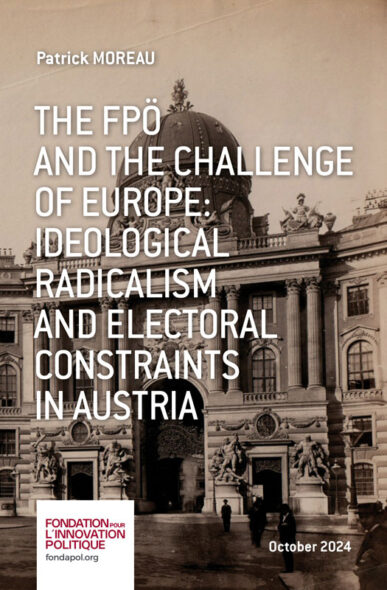
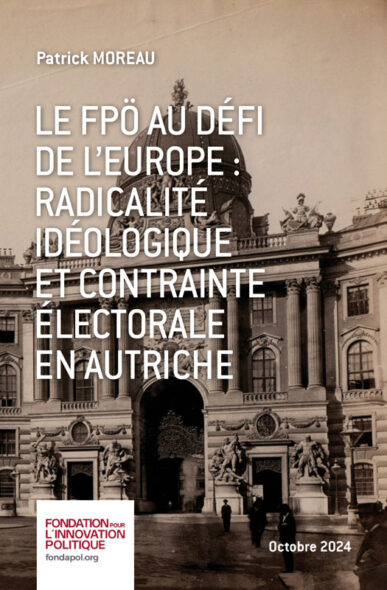
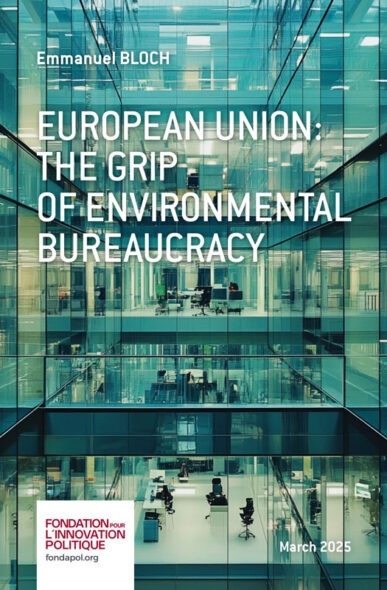
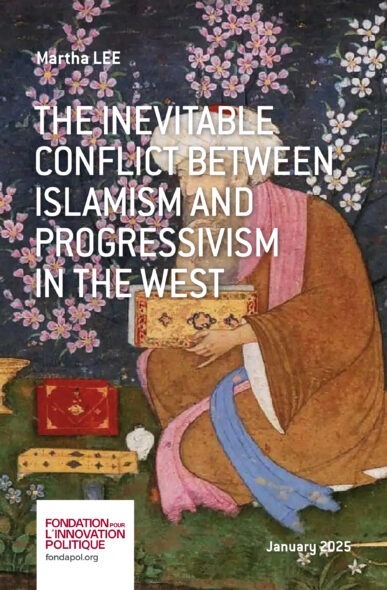
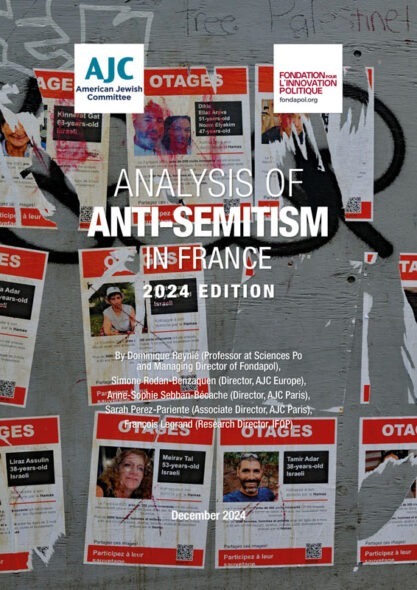
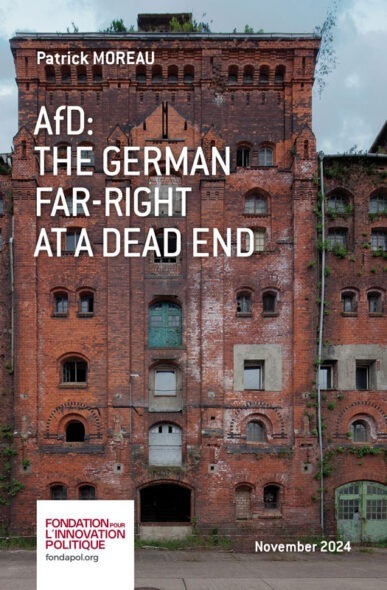

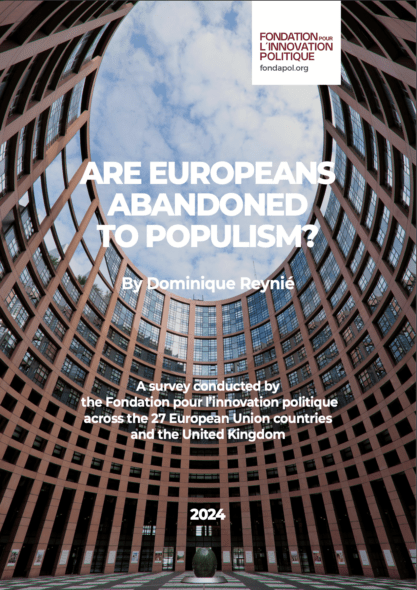
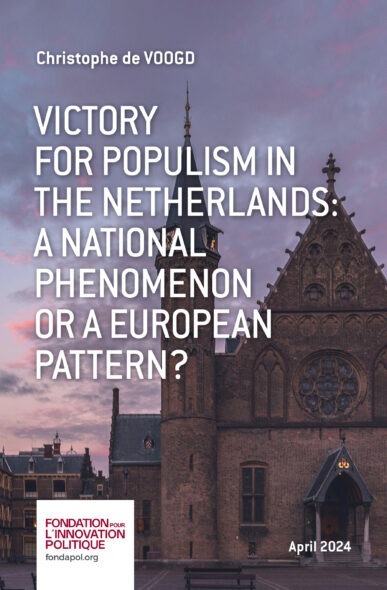
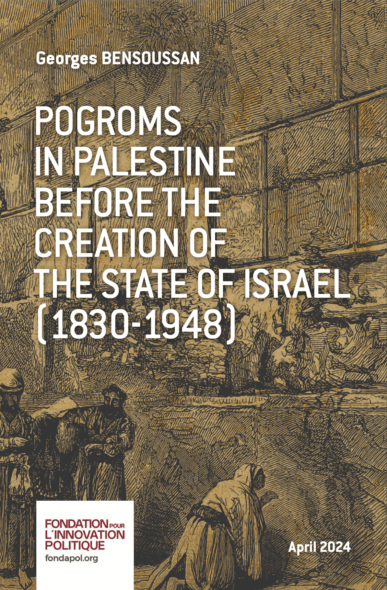
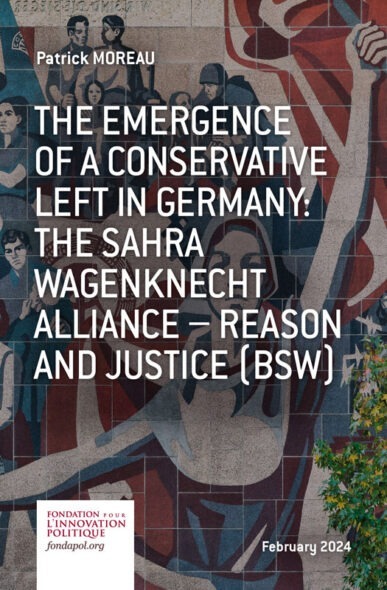
No comments.